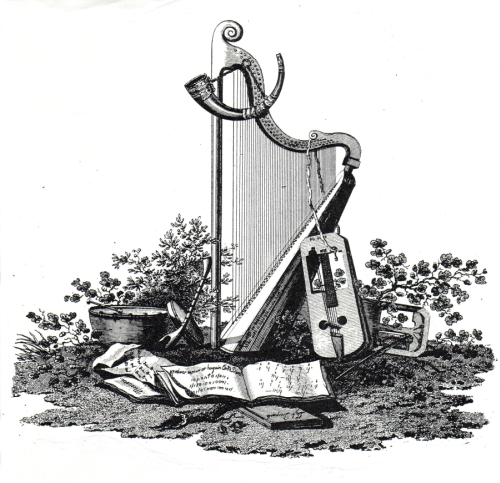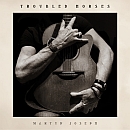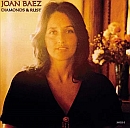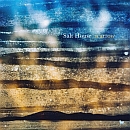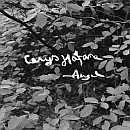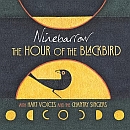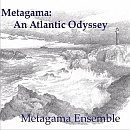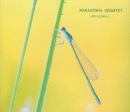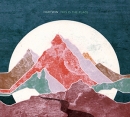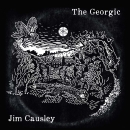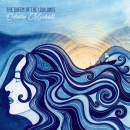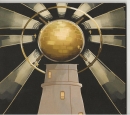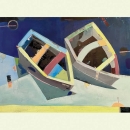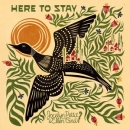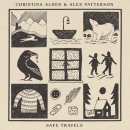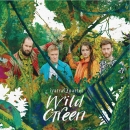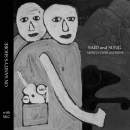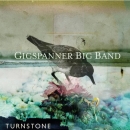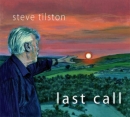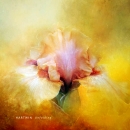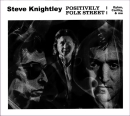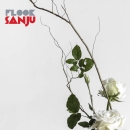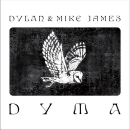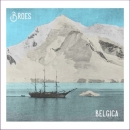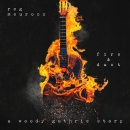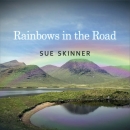Contents
- MARTYN JOSEPH
- JOAN BAEZ
- MICK’S QUICKS
- MICK’S QUICKS
- SALT HOUSE
- MICK’S QUICKS
- CERYS HAFANA
- NINEBARROW
- MICK’S QUICKS
- METAGAMA ENSEMBLE
- MICK’S QUICKS
- EVE GOODMAN & SERA
- MICK’S QUICKS
- NARAGONIA QUARTET
- HARTWIN
- MICK’S QUICKS
- MICK’S QUICKS
- JIM CAUSLEY
- MICK’S QUICKS
- ODETTE MICHELL
- MICK’S QUICKS
- EILIDH SHAW & ROSS MARTIN
- DONALD WG LINDSAY
- JOCELYN PETTIT & ELLEN GIRA
- MICK’S QUICKS
- MICK’S QUICKS
- CHRISTINA ALDEN & ALEX PATTERSON
- IYATRAQUARTET
- SHEILA K. CAMERON
- GIGSPANNER BIG BAND
- MICK’S QUICKS
- STEVE TILSTON
- HARTWIN
- STEVE KNIGHTLEY
- FLOOK
- MICK’S QUICKS
- DYLAN & MIKE JAMES
- MICK’S QUICKS (Part 2)
- MICK’S QUICKS (Part 1)
- BROES
- CYNEFIN
- MICK’S QUICKS
- REG MEUROSS
- SUE SKINNER
NOVEMBER 2025
MARTYN JOSEPH
Troubled Horses
Pipe Records PRCD042/PRLP042
***** FIVE STAR CHOICE! *****
Magnificent, stunning, mind-blowing… In the words of Martyn Joseph: “I wanted to create a recording that felt intimate to the listener – it’s a dry and present space where a person can feel like they’re with me in a small room. I’m singing and playing these songs about the bad and the beautiful just for them. Solo performance is my bread and butter, anyway, so why change that up? Through the years I feel like I’ve struggled to make records that reflect the impact of what happens at my live shows, but I think the essence of that has been captured here. I don’t ever recall being as satisfied with my opus as I am on the Troubled Horses album.”
Martyn’s latest offering is an intense, immediate and totally stripped bare collection of 11 songs, which will be released on November 7, 2025; carrying nothing but his solo Lowden acoustic guitar and his harmonica, he went into his recording studio in South Wales determined to really connect with the single individual and fashion an imaginary cosy fireside kitchen for him or her. He produced, engineered, mixed and penned all the material, with the exception of three songs which he co-wrote; his poetry is direct and vitally relevant, choosing words or phrases that impact and affect everybody: “I wanted to create a record that felt up-close and personal – songs that are sitting right next to you, on the edge of too close for comfort.”
Maybe it’s those troubled times when the world is plunging into uncertain far-right madness, where the misogynist dictator reigns supreme just over the pond and the raging snake-oil salesman is on the ascendant; however, inspired by the example of Jason Isbel, who went into a New York studio holding his guitar and came out after five days with a complete album, Martin had set himself a crazy challenge to write and record an entire collection of songs in days rather than months – and it works brilliantly. He jumps in with the strong opener and heartfelt plea ‘Let Me Hear Your Voice’, and quickly follows up with ‘My Song and My Psalm’; his words resound: “I’m not looking for a song to outlast me / That speaks in a thousand years / I’m looking for a song that luminates now / Some lines that will meet you right here”. And then: “I’m not looking for a song that says it’s all o.k. / That it’s gonna work out fine / Just a song that will cry out in the darkest of days / That love will show up in time.” ‘Troubled Horses’, the album title track, mirrors the violent summer riots that sheer right-wing hatred fanned the flames. Martyn wrote of the police: “They were carefree once, throwing frisbees in a field / Now they’re fending bricks and debris from beyond their riot shields.” And the rioters? “They were youngsters once, knocking back bravado beers / They’re guilty now, sentenced to three years / Rioters now, howling rage in a coked-up blur / There’s no country to ‘want back’, if we’ve all come from elsewhere.”
Perhaps the strongest rhymes come from him, as he laments the sad story that the greatest country on earth has lost its way: “Now you don’t board Paul Simon’s Pittsburgh Greyhound anymore / Or take the Tom Waits Springsteen ride down to the Jersey shore / Or walk with sweet Gram Parsons down ‘The Streets of Baltimore’ / Today I lost America, the country of before.” He takes the stand: “Come back home, America, withstand that bird of prey / Who seethes in mocking opulence, inciting disarray / Come back to each other, a new Independence Day / Come back home America – before everything gives way.”
Martyn inevitably knows that he’s not a young man anymore; he writes in ‘Getting Older’: “Yes, I’m getting older / I feel the pain / I try to seize the day / but it’s not quite the same…” He fends off uncertainty, casting doubts: “I was just a kid once, with a guitar in my hand / Tried to spread the love but it all got out of hand / And I wonder, I wonder I do.” In the last and final track, where nothing is quite sure: “Let’s take care of us, babe, in the storms and charades / When the light is uneasy, and the MOT fails / When everything else seems to hold us in time / Let’s take care of us darling, all yours and all mine.”
I’m sitting now with Martyn, one on one; it seems that he is speaking to me, and nobody else but me. As I said: Troubled Horses works stupendously.
OCTOBER 2025
JOAN BAEZ
Diamonds & Rust (1975 edition)
A&M Records UMCLP075
***** FIVE STAR CHOICE! *****
Reissued records are normally treated as short paragraphs on the ‘Mick’s Quicks’ page, but this is important and significantly different – after all, the FolkWales Editor gives a thumbs-up! Kent-based Proper Records, in collaboration with Universal Music Recordings, are to release the sixteenth studio album from the legendary singer-songwriter and activist Joan Baez on November 21, 2025. Originally issued on A&M Records in April 1975, Diamonds & Rust marked a change in direction for Joan, who was born in the Staten Island borough of New York City on January 9, 1941; it gave her songs of the heart and politics an unashamedly commercial veneer, returning her to the US Top Twenty for the first time in four years. To mark the album’s 50th anniversary, Diamonds & Rust is shown with scrupulous attention to the detail of its original UK first pressing and is available with an audiophile LP.
Joan is generally regarded as a brilliant folk singer who was possessed with a wonderful unique voice; however, her music has completely diversified since the counterculture era of the 1960s and encompasses genres such as folk-rock, pop, country and gospel music. She began her recording career in 1960 and achieved immediate success; her first three albums – Joan Baez, Joan Baez Vol. 2 and Joan Baez in Concert – all achieved gold record status. Although a songwriter herself, Joan interprets other artists’ work, recording many traditional songs and tracks written by extremely diverse musicians like the Allman Brothers Band, the Beatles, Jackson Browne, Leonard Cohen, Woody Guthrie, Pete Seeger, Paul Simon, Stevie Wonder, Bob Marley and many others. She was the first major artist to record Bob Dylan’s songs in the early 1960s; Joan was already an internationally celebrated artist and did much to popularise his early songwriting efforts. Her tumultuous relationship with Dylan later became the subject of songs by each of them and generated much public speculation; Joan wrote the stunning and beautiful ‘Diamonds & Rust’, which became the landmark album’s title song. Dylan said in 2009: “I love that song ‘Diamonds & Rust’. I mean, to be included in something that Joan had written – whew, I mean, to this day it still impresses me”.
Joan’s lyrics were crisp, intelligent and poetic, and they cut through the melody like sharp daggers: “Well, I’ll be damned; here comes your ghost again / But that’s not unusual, it’s just that the moon is full / And you happened to call / And here I sit, and on the telephone / Hearing a voice I’d known, a couple of light years ago / Heading straight for a fall…” She wrote ‘Diamonds & Rust’ in November 1974; it was the beginning of a new musical direction and awareness for Joan, who understood what this song meant long before anyone else could imagine where it would lead her; it was also the first track laid down at the recording sessions. Joan sang lead and played acoustic guitar, Moog and ARP synthesisers, and David Paich played electric harpsichord; Wilton Felder was the bassist, Big Jim Gordon was on drums, Larry Gordon and Dean Parks played electric guitars and Joe Sample was the pianist. Other musicians accompanied, but none could believe they were at a Joan Baez session. They had freedom and an opportunity to express their own art – but the album had got off the ground.
If people were unaware of the significance of Joan to western culture, her portrayal in the Bob Dylan biopic A Complete Unknown – played by Monica Barbaro – underlines how central she was to the popularisation of folk music in the early 1960s. However, it is her decade-previous relationship with Dylan that hovers joyously over Diamonds & Rust; the title track is about a thinly-disguised ex-lover who calls up out of the blue, and it remains one of her most loved songs in a 65-year-career. There’s a playful cover of ‘Simple Twist of Fate’ from Dylan’s then just-released album Blood on the Tracks, complete with impersonation in a later verse; and ‘Winds of the Old Days’, written in response to Dylan touring again after a lengthy hiatus.
Diamonds & Rust is a perfect, sunshine-drenched album of West Coast folk-tinged rock, full of star session players. It could almost have been a signal to all the recent comers on her patch – many of them friends and colleagues, Joni Mitchell, Carole King, Maria Muldaur – that Joan was here first and was sweetly reasserting her authority. Listen to her mastery on ‘Children and All That Jazz’, her cover of Stevie Wonder’s ‘Never Thought You’d Leave in Summer’ and the piano-accompanied closing medley of ‘I Dream Of Jeannie’ (written by “the father of American music”, Stephen Foster), and ‘Danny Boy’, written by prolific songwriter and radio entertainer Fred E. Weatherly.
MICK’S QUICKS
► Heartiest congratulations! The prestigious Mercury Prize, which took place at the Utilita Arena in Newcastle on October 16 this year, included celebrated folk icon and legend Martin Carthy‘s latest Topic album Transform Me Then Into a Fish on its 2025 shortlist. The 84-year-old musician holds the record as the oldest artist ever nominated for this award and also the first to have had a wife, the late Norma Waterson, and daughter, Eliza Carthy, previously nominated. Eliza, who has been shortlisted twice, also co-produced it with Ben Seal and also plays powerful fiddle for accompaniment. Martin is a tireless crusader for traditional music; he doesn’t preserve it in a dusty museum but constantly drives it forward. His voice may be aged and worn, but his crystal-clear vocals still brightly rings and his unique guitar mastery is very subtle and careful; the 11 songs he has chosen get lovingly polished into sparkling life by his magical and commanding presence and relevance. This is vintage Carthy, starting with ‘The Trees They Do Grow High’ and ‘Ye Mariners All’ (the words of which are the album title). ‘A Begging I Will Go’ is a new attack on the homeless crisis, ‘The Famous Flower of Serving Men’ is a spoken ballad which works beautifully, while Martin taught ‘Scarborough Fair’ to the young Paul Simon; and lastly, ‘The Ballad of Springhill’ is a rare mining lament from Nova Scotia. No doubt about it: Carthy is God. FolkWales verdict: Thumbs up!
► The lovely songwriter and absolutely smashing performer Charlie Dore has just released Still Curious (Black Ink Records, BICD10), an EP featuring three never previously recorded songs which includes the first ever recording of a long-lost Elvis Costello song, and a collaboration with Michele Stodart of The Magic Numbers; in 1976 on the London pub circuit, Charlie and her bluegrass band crossed paths with Elvis, and she salted away a cassette which contained a stunning song called ‘Mercury Wings’, which he had never recorded. Nearly 50 years on, Charlie has given the song its long-awaited debut with Elvis’s blessing. Alongside it sit two completely new originals: ‘Overdrawn at the Sleep Bank’, a wry yet poignant meditation on sleepless nights, and ‘Slow Reveal’, written with Michele, which mirrors the painful ways we come to recognise ourselves. FolkWales verdict: Thumbs up!
► Hot on the heels of Jamland, his wonderful collaboration with stunning guitarist and melodeon player Tim Edey, Manchester-born flute-and-whistle virtuoso Michael McGoldrick has released the inspirational and very educational digital album 50 Original Tunes and Chords by Michael McGoldrick on the Bandcamp platform; backed with empathetic piano and bodhrán, he demonstrates his self-composed jigs, reels, fast waltzes and simply beautiful airs to tune names ranging from ‘James Brown’s March’, ‘Donnellan’s Smokey Chimney Reel’ and ‘Farewell to Whalley Range Slip Jig’ to delights like ‘Fisherman in the Wardrobe’ and ‘Trip to Nova Scotia’. All the tunes are quite short; Michael doesn’t hang about when he wants you to hear his 50 items. A co-founder of Flook and Lúnasa and a linchpin of Capercaillie’s line-up since 1998, he’s performed in recent years around the globe in ex-Dire Straits legend Mark Knopfler’s band; so you know what he’s talking about! FolkWales verdict: Thumbs up!
MICK’S QUICKS
► Well, well! Ian A. Anderson, editor of the now-closed and sadly lamented fRoots magazine, has alerted me to the new Robert Plant/Saving Grace album, released on September 26 by Nonesuch Records, ten tracks which display a reverent doff-of-the-cap to the folk and roots tradition; Ian says that this album is not only extremely good, but it gives Roud numbers for the traditional songs mentioned and has a half-page explaining what the Roud Folk Song Index is and many references to earlier collected versions. Saving Grace was named after the rock band Plant had been performing with for over six years; the personnel is singer Suzi Dian (which duets with Plant), drummer Oli Jefferson, guitarist Tony Kelsey, banjo and string player Matt Worley and cellist Barney Morse-Brown. It includes a Blind Willie Johnson song that Bob Copper previously recorded and was sung by Shirley Collins and Linda Thompson at Bobstock. Try it! FolkWales verdict: Thumbs up!
► Anyone would have thought that KB Bayley was a great American songwriter, an impressive fingerstyle acoustic guitarist and an exciting lap steel player, but no – he was born a Geordie in the north-east coast of England, grew up in the south-east, listening to English folk, American blues and the Laurel Canyon era, and now spends a lot of time in the east coast: “I am equally moved by a traditional folk tune, a Kelly Joe Phelps lick or a John Moreland lyric.” His second self-released album, East Side Confessions (no catalogue number) comes out in November 28 this year; it’s ten marvelous, incisive and intelligent songs from the album title track, the swampy ‘Don’t Let the Rain Fall on My Face’ to the final ‘That Kind of Lonely’. Guest musicians add a dash of colour, with Sarah Carter’s lovely harmony standing out. FolkWales verdict: Thumbs up!
► UK-based Gambian griot and mighty kora artist Suntou Susso, son of legendary star kora player Mamuduo Susso, is making an impressive mark on the global music scene with a stunning new ten-track album produced with 24 musicians from 10 countries (including Scottish fiddler Ross Grant.) Released on November 7, Jaliya Silokang – The Path of a Griot (FAKOLI25CD / FAKOLI25LP) is a deeply personal exploration of identity, heritage and cultural legacy; sung in Mandinka, his mother tongue, he transends the boundaries of folk, soul, jazz, funk and traditional kora music, and his fetching clear voice and amazing instrument works wonders. FolkWales verdict: Thumbs up!
► Blue Rose Code is the band headed by alt-folk contemporary singer-songwriter Ross Wilson, who was raised by his grandmother in a council high-rise on the east side of Edinburgh; in the digital album and CD Sold Out, Live in LDN – DDL (Bandcamp), the stripped-back Blue Rose Code consists of guitarist Lyle and Ross performing a generous 16 tracks in a Camden club in North London, cheered on by the crowd. The twin acoustic guitars are a dizzy dream, and his amazing voice soars, swoops and flies; he creates a welter of songs from the bold opener ‘Love a Little’, ‘Riverstown’ tacked onto ‘The Wild Atlantic Way’ and the tender and passionate ‘Bluebell’. Ross covers a song by Jackson Browne, Bob Dylan and Van Morrison, and overturns the traditional ‘Wild Mountain Thyme’ on its head. FolkWales verdict: Thumbs up!
SALT HOUSE
Scarrow
Hudson Records HUD055CD
Scarrow is an ancient Scottish noun for a faint light, a reflection, the shadow of a crow on a hill, the faint light from a wall – or something gleaming intermittently or indistinctly. Salt House return with their fifth album, recorded and produced with award-winning Andy Bell in Sheffield’s Hudson Studios; new member, fiddler, viola player and tenor guitarist Anna Hughes, has joined guitarist and percussionist Ewan MacPherson and pianist, guitarist, harmonium and dulcimer musician Jenny Sturgeon for twelve very beautiful and incredibly peaceful harmonies which are about reflection, renewal and really connecting in a world craving all three. Anna, Ewan and Jenny describe Scarrow as: “a collection which talks of hope, community and sharing light. More than ever we feel the need for connection and heartening experiences that people make together.”
This album is a testament Salt House’s developing and evolving sound, which is deeply rooted in tradition but is ever fresh and forward-looking. Their gloriously poetic and elegantly fragile music is ever moulded by the landscapes they call home — Ewan was born in Liverpool, was brought up in the mountains of North Wales and Cader Idris and – as he describes himself – “is now lost in the Scottish Highlands”; Jenny is a Shetland Islander and Anna hails from the wild hills of Northumberland. Andy Bell’s synth, Magnus Lundmark’s percussion and Ben Nicholls’ electric and double bass blend smoothly in and are almost imperceptible.
The opening track, Violet Jacob’s ‘Autumn on the Run’, is a poem adapted by Jenny; her single harmonium heralds the songs, and Ewan and Anna join in the voices. Anna’s song, ‘Take This Day’, is about living and enjoying just for now; and Ewan’s wonderful composition, ‘Cut Him Out in Little Stars’, is a life-affirming anthem, layered by a trio of breathtaking harmonies. ‘Fathoms’, a lament for a drowned lover, is Jenny’s adaptation by the Rev A. Stewart, translated from the Scottish Gaelic; and Anna’s lovely wake-up call, ‘Headed Our Way’, is a pretty melody which comes from birdsong. Jenny’s ‘Snow Walking’ is a celebration of the longest winter nights, and Ewan’s ‘Horizons’ create a triptych of brilliant and weird vocals. Anna’s adaptation, ‘I Met at Eve’, are verses from Walter de la Mare, an English poet, short story writer and novelist who was born in 1873 and died in 1956; and Ewan excels himself and the two girls with ‘Underwing’.
Jenny’s ‘Blackbird’ is a love song for the nature on everybody’s doorstep, and Anna’s ‘Waiting for Summer’ is the anticipation for the arrival of a friend’s baby. Ewan’s entrancing and final song, ‘Share the Light’, basically sums all of Salt House’s attitude: “I love it when the fire is glowing / And brought the moonlight on the wall / I love it when the music’s flowing / And later when the talk is low.” Yes – Scarrow is a calming, soothing album which talks and sings of future hope.
SEPTEMBER 2025
MICK’S QUICKS
► Contemporary songwriters and folk musicians Hannah Sanders & Ben Savage have released their new album The Strangers’ Share (Sungrazing Records, SGR011), ten impressive and imposing guitar-led songs bursting with soaring, spacy harmonies, well-known traditional and written material and the doff of the cap to Bob Dylan (‘North Country Blues’), the wonderful Lal Waterson (‘Fine Horseman’) and jazz pianist Richard M. Jones (Trouble In Mind). The title track is Kevin Crossley-Holland’s retelling of the East Anglian supernatural folk tale, and their beautiful ‘Morning Stands on Tiptoe’ has already been released as a single. FolkWales verdict: Thumbs up!
►Traditional fiddler, composer and totally weird songwriter Mikey Kenney comes from North-West England; he’s performing upstairs at the Art Shop and Chapel in Cross Street, Abergavenny on Friday, October 3. Following his latest offering Reverie Road, which met with great acclaim from fRoots Magazine and many folk pundits, Mikey’s tremolo-high-tenor voice has released his new album Tiny Little Light (Penny Fiddle Records, PFR2502CD), ten tracks of strange and wonderful drumkit-led material, starting with the opener ‘Scarecrow Festival’; highlights are ‘The Doing of the Bee’, ‘Cornish Journey’, ‘Dandelion’, the CD title song and the closing minutes-long stunner ‘The Dish and the Drain’. He plays viola, melodeon, electric guitar, bass guitar, piano and banjo, and a bevy of musicians help out – including Penny Fiddle owner Holly Harman on vocals. FolkWales verdict: Thumbs up!
► Now this is incredibly soothing, extremely creative and totally lovely! The Belgian duo Thalas is the new project formed by diatonic accordionist Guus Herremans and acoustic guitarist and Trad Records producer Ward Dhoore, two longtime friends whose musical paths have intertwined for over a decade in Belgium’s vibrant folk scene. After years of collaborating in various bands, they’ve now formed a vacant space that’s entirely their own work. As It Comes (Trad Records, TRAD043) is a ten-track instrumental wonder; for starters, chattering and dancing squeezebox collaborates with eloquent and elegant guitar in ‘We’re Off’, an unforgettable melody that acts as a welcome signpost for ‘Tideframe’, ‘In Good Company’, ‘La Vie Saucy’ and the stunning finisher ‘Hideout’. Ward adds an extra mandola, mandolin, piano, synths, soundscapes and a touch of real class; it’s just perfect. FolkWales verdict: Thumbs up!
► Sudanese-Italian singer-writer and amazing vocalist Amira Kheir releases her captivating fourth album Black Diamonds (Sterns Music, STDC1132) on October 10, and it’s her heartfelt ode to her Sudanese and African ancestry; she sings in English, Arabic and Italian but her Global music homes in on Sudanese folk, soul and jazz. Nominated as a Best Artist in the Songlines Music Awards, BBC News dubbed her “The diva of the Sudanese Desert”, she opens with the satisfying ‘River’, immediately plunging into ‘Mowdi Aljamal’ (In a Place of Beauty) and ‘Sudanl’ (My Sudan). She takes the listener on a magic carpet ride before winding up with the last album title track; what an uplifting ten-song collection. FolkWales verdict: Thumbs up!
► Glaswegian singer-songwriter Michael McGovern is a very fluent fingerpicker on his guitar, a fine and melodic songwriter and a smart arranger, but he does fall into the trap of blindly following the rock star attitude. His unclear diction leaves a lot to be desired, and I can’t understand his meaning at all; maybe a voice coach will put him on the right road. His second ten-track album, Thin White Road (Cauldron Music, CMCD/LP006, release date November 7), was recorded at Black Bay Studios in the Isle of Lewis, Outer Hebrides, varies wildly between in-your-face rock-band material and simply beautiful composing; however, his opaque and fuzzy performing leaves the listener wondering what these songs are about.
► Oregon-based amazing singer, acoustic guitarist and hard-hitting prolific songwriter Alice DiMicele advertises her musical wares as “folk, Americana and acoustic soul”. Her latest nine-track album, a staggering 18th so far, is called Reverse the Flow (Alice Otter Music, AO/118) and she’s like Joni Mitchell tuned up to 11; she’s joined by her super-tight band, Force of Nature, and her vibrant voice plunges so low that you’d swear your speakers were vibrating. Her organic work speaks to the audience, and highlights are ‘Falling Through the Cracks’, the anti-war ‘Oh Humanity’, the story-ballad ‘The Ghost of Alice’ and the album title track; it’s nine songs of sheer heaven. FolkWales verdict: Thumbs up!
CERYS HAFANA
Angel
tak:til / Glitterbeat (GBCD/LP 178)
Acclaimed Welsh composer, singer and accomplished multi-instrumentalist Cerys Hafana comes from Machynlleth in Powys, is a member of AVANC (the Youth Ensemble of Wales) and in their own words, “mangles, mutates and transforms traditional music”. Hafana’s fourth album, Angel, will be released on Friday, September 26, and it’s a nine-track deep exploration of stunning minimalism, traditional and progressive folk music surrounding Hafana’s principal instrument, the Welsh triple harp. Hafana’s last EP, The Bitter – which has completely sold out – was a five-track interpretation of traditional folk songs and ballads from these islands, including ‘The Bitter Withy’ and ‘The Wife of Usher’s Well’; however, Angel alternates between Welsh-language songs and instrumentals, often sympathetically accompanied by a trio of fine musicians, double-bassist Ursula Harrison, Amie Huckstep on alto saxophone and percussionist Lisa Martin. Hafana credits producer Owain Fleetwood Jenkins for the intimate quality of the sound. Recorded in his Pembrokeshire studio, the sessions were captured live with just a few takes. Hafana had not worked with any of the trio before but had very specific ideas about who and what was needed to capture the atmosphere they wanted.
Hafana’s music is totally immersed in Welsh harp traditions but also embraces minimalism, jazz, the avant-garde and Breton folk styles; Hafana explains that the way the voice and saxophone together respond is a close approximation of the traditional Breton kan ha diskan singing style, where the singers alternate lines to maintain a steady rhythm for fest-noz dancing, and says that the Breton style “has wormed its way into my brain and heart.”
The triple harp has three parallel rows of strings instead of the more common single row; the ‘accidentals’ are set into the middle row. Hafana is a trans person who says they’re not fitting into the gender binary, uses the pronouns ‘they’ or ’them’ and prefers the surname; Hafana has also appeared at many major festivals across Europe, including Green Man in the Bannau Brycheiniog National Park, Between the Trees in Merthyr Mawr, South Wales, Trans Musicales (performing at the Conservatoire de Rennes auditorium in Eastern Brittany), Reeperbahn in Hamburg, Germany, Sesiwn Fawr Dolgellau, Theatr Mwldan’s Other Voices in Cardigan and WOMAD; Hafana was also the featured guest in an hour-long BBC Wales TV St David’s Day special marking the mighty Calan’s fond farewell, broadcasting from the Wales Millennium Centre in Cardiff Bay.
The spellbinding music of Angel is rich with atmosphere and heart, and stubbornly resistant to genre boxes and easy classification. The album is centered on a folk tale about an old man lulled into a centuries-long sleep by an angel’s song; Hafana found this through a database of ballads in the Welsh National Library’s online archive, and says is an amazing resource.
Although Hafana says that the piano is their main instrument, their triple harp mastery has gained them a reputation as an innovative and powerful musician. The triple harp has a distinct timbre; Hafana had the idea of damping the strings using Blu-tac to produce a woody, muted sound, after hearing about other traditional harpists threading strips of paper and other material to create a ‘buzzy’ effect. Angel starts off with a flourish; the five-minute ‘Helynt Rhyfeddol’ (An Incredible Ordeal) hypnotises the listener as Hafana tells a beguiling story. Next up is thr hypnotic ‘O’r Coed’ (To the Wood) and ‘Drexelius’; Hafana’s plaintive vocals colour the traditional spring carol ‘Carol Mynyddog’, and the final track is the insistent instrumental ‘Atsain’ (Echo) – where Hafana takes a last curtain call.
NINEBARROW
The Hour of the Blackbird
Independently released, catalogue no. 9BTH0TB
Over the course of twelve years and five studio albums, Dorset duo Ninebarrow have earned themselves a quality reputation for their engaging and empathetic writing, their imaginative reworkings of traditional songs, their deft musicianship their exquisite vocal harmonies; now Jon Whitley’s and Jay LaBouchardiere’s harmonies have been enriched and fused by more than 40 other voices from Hampshire’s Hart Voices, based in Fleet, and Surrey’s Chantry Singers, from Guildford to create this wonderful album, which sees 13 of Ninebarrow’s finest back catalogue songs renewed and enhanced by the soaring vocals of sopranos, altos, tenors and basses under the energetic musical directorship and ingenious arrangements of Roy Rashbrook, himself a member of the choir of St Paul’s Cathedral. It was nearly a decade ago, at the lovely little house concert in Farnborough, when Jon and Jay were very lucky to meet Roy; but, as they said in the sleeve notes: “Little did we know at the time, but that chance encounter would spark one of the most creative and exciting collaborations of our careers.”
The Hour of the Blackbird was produced Mark Tucker in his Devon Studio, as well as Arc Studios in Eynsham in West Oxfordshire and Gavin Hall at Lord Wandsworth College in Long Sutton, Hampshire; it will be released on Friday, October 3, revisiting songs which were recorded on Ninebarrow’s earlier albums, including Where the Blackthorn Burns (2014), Releasing the Leaves (2015), The Waters & The Wild (2019) and A Pocketful of Acorns (2020). Jon and Jay’s absolutely beautiful vocals combine with the swelling voices of the two choirs, and their older repertoire is taking on new lease of sparkling life.
First up is ‘Names in the Sky’, followed by ‘Come January’ and the album title track, ‘The Hour of the Blackbird’; Jon, Jay and choirs weave complete peace, tranquility and really relaxing bonhomie, which makes the listener feel really refreshed, happy and determined to face this crazy world again. Most of all, it’s ‘Under the Fence’ which has to be the favourite standout. The closing track is the satisfying ‘Farewell Shanty’, and Ninebarrow join in with the angel descants; what a stunning, mind-blowing and totally joyful collection.
MICK’S QUICKS
► Luxuriously white-bearded musical veterans Ian Bruce & Kev Green release their rough-and-ready debut album Believe Me, I’m Lying (Ruglen Record Company, LUMSCD0118); two old friends have come on totally different spheres, singer-songwriter Ian from a mostly sitting and listening audience and Kev from raucous fun-filled pubs and venues of his local Kent in the 1980s. They record 15 tracks in The Row Studio in the village of Letham, Fife; there are quite a few blips and warts, but what the hell – let’s rock! They write a majority of songs; highlights are ‘Fire on Board’ (Ian’s solo composition) and ‘The Slave’s Lament’ (Robert Burns, melody by Ian.) They cover three songs by Neil Young, Bad Company’s Paul Rodgers and the wonderful Sandy Denny, but the only niggle is the unsmiling faces on the CD sleeve – cheer up, lads, or else someone may nick-name you grumpy old men! FolkWales verdict: Thumbs up!
►Prolific Liverpudlian storyteller and singer-songwriter Alun Parry has churned out an amazing score and more of hard-hitting, socially-conscious albums with his folk-pop material, which he has become compared to “the UK’s Woody Guthrie”; in his album Invisible People (self released, no catalogue number), he powers his way through ten intelligent, persuasive and very catchy songs, including the opener ‘Meet Me at the Bombed Out Church’, ‘The Devil is a Debt Collector’ and the satisfying closer ‘A Better Metaphor’. Highlight is the brilliant ‘A Drinking Man’, which lasts five minutes and more; he surely can hold his head up as the most articulative wordsmith and conjuror of addictive earworms in these islands today. FolkWales verdict: Thumbs up!
►Firebrand, fearless singer-songwriter and totally commanding guitarist Jon Wilks grew up listening to Nick Drake, Pentangle, Paul Simon, Martin Carthy and other folk luminaries; his fifth offering, Needless Alley (Swordfish Records), is the song and the title track which relate to a street in Birmingham, his home city, on which he used to busk as a teenager. He’s backed by his regular band The Grizzly Folk, and the nine-track album also brings guests from across the folk spectrum, including Jackie Oates, Ellie Gowers, Nick Hart and Tamsin Elliott; it was produced by Jon and Joe Sartin, and it considerably raises the bar with exciting material from the opener ‘Could You Be the One’ to the closing ‘Mine is the Sun’. ‘Montagu Whaler’ sounds like a traditional song, but it was written in the late 20th century by Nigel “Bernie” Bruen, a Birmingham-based sailor serving in the Falklands; Jon first discovered the song in the Roy Palmer folk archives. FolkWales verdict: Thumbs up!
METAGAMA ENSEMBLE
Metagama: An Atlantic Odessey
Wee Studio Records: WSMETA001
www.birnamcd.com/birnam-pr/metagama
***** FIVE STAR CHOICE! *****
When the SS Metagama left Stornoway in the early evening of Saturday, April 21, 1923, she had 307 Canada-bound young Hebrideans on board as part of the Assisted Passage Scheme; the emigrants’ average age was just 22 and would go into arranged jobs, mainly in Ontario agriculture. Less than 20 were women, most of whom went into service as domestic servants and children’s nannies with wealthy Toronto families. The Metagama was not the first ship to collect island emigrants; from the 18th and 19th century Clearances onwards, vessels had transported thousands of the Inner and Outer Hebrides to many corners of the world. Earlier on April 15, 1923, the SS Marloch had already picked up 280 people from Lochboisdale in South Uist, which were destined for Red Deer, Alberta, including families from Barra, Vatersay, Eriskay, South Uist and Benbecula; the mass emigration would have a devastating and lasting impact on the islands. Many of the emigrants journeyed south to the USA, where they found work in the construction and automobile industries. Tweve Gaelic-speaking men from Lewis alone worked on the iconic Fisher Building skyscraper in Detroit.
The Metagama Ensemble comprises nine acclaimed musicians and singers who are touring around Scotland this autumn, starting at the Traverse Theatre, Edinburgh (October 31) and ending at Tollbooth, Stirling on November 13 – sadly, Wales (and England) misses out. The personnel are writer and poet Donald S. Murray, pianist and singer-songwriter Liza Mullholland, Gaelic actor and 7.84 Theatre Company co-founding performer Dolina MacLennan, master fiddler and composer Charlie Mackerron of Capercaillie and Scottish supergroup Session A9, singer-songwriter Willie Campbell, Gaelic singer and piper Calum Alex Macmillan and cellist Christine Hanson.
A legacy of their live show of the same name, marking and commemorating the centenary of the mass emigration from the Hebrides to Canada in 1923 and 1924, this album is filled with an amazing 36 tracks, including 19 superb traditional Gaelic and new songs in English, written by the Ensemble, and all new instrumental pieces, interspersed with narration by Dolina and David; the total running time is a whopping 76 minutes. The show tells of the heartache of homesickness and separation to the lively fun of ceilidh tunes on the dance floors of North America; this album gives voice to experiences to those who left and those who stayed behind, narrating the account of an important but little-known period of Hebridean history – the cruel blow of which is still being felt in the islands today.
Since the Metagama Ensemble premiered their show in a Creative Scotland-supported tour of the Highlands and Islands their project grown exponentially with capacity audiences, followed by a sold-out show at Glasgow’s Celtic Connections festival in 2024. Following many requests, An Atlantic Odessey was recorded in Black Bay Studio on Great Bernara and in The Wee Studio in Ness, Isle of Lewis; it was produced by the Matagama Ensemble and Pete Fletcher of Black Bay Studio. In addition to Creative Scotland, the album has been supported by Harris Tweed Hebrides, Charles Macleod Butchers and Crowdfunder sponsors. If you haven’t listened to An Atlantic Odessey, it really is worth it – and perhaps you’ll take a long trip just to see the show completely live. As I said: it’s worth it in shedloads.
AUGUST 2025
MICK’S QUICKS
►Wonderful bagpiper, whistler, pipe player and composer John Dew comes from Perthshire and graduated from the Royal Conservatoire of Scotland with a First Class Honours degree in traditional music in 2020; as a musician, he has performed in all the major festivals, including Celtic Connections, and as a competitive piper and member of the three-time winning Inveraray and District Pipe Band, he has travelled around the globe. His third album, An Caismeachdan (independent release, JDEWCOMP7CD3, in translation: The Parades) is a stirring and beautiful ten-track cauldron of his self-written marches, jigs and airs; the brilliant pianist Michael Biggins and a string quartet is a welcome accompaniment. The bonus track is John on the solo bagpipe, fading away in the distance; it’s a huge chunk of the Scottish tradition that deliciously echoes for a long time. FolkWales verdict: Thumbs up!
►Welsh-born acoustic guitarist and striking composer Gwenifer Raymond graduated from Cardiff University with a PhD. in Astrophysics, moved to Brighton and became an AI and video game programmer; her follow-up 2020 album, Strange Lights Over Garth Mountain, considerably raised her reputation and her third completely solo offering, Last Night I Heard the Dog Star Bark (which is released on September 5) is a dark and instrumentally magnificent ten-track hybrid of the ancient and futuristic, infused with occult folk-horror. Influenced by John Fahey, Steffan Grossman, Captain Beefheart and Bob Dylan, she creates a singular new sound, which she dubs “Welsh Primitive”. The album is heavily inspired by her love of science fiction; the second track, ‘Jack Parsons Blues’, mirrors a Californian rocket scientist who was a friend of Scientology founder L Ron Hubbard and follower of English occultist Aleister Crowley. Listen and be impressed – and be very afraid! FolkWales verdict: Thumbs up!
► Chrysalis Global, a new imprint of Chrysalis Records, will bring out its first album release on September 26, 2025 – the instrumental Guitari Baro (Guitar Conversations), featuring three outstanding and renowned Mande griot hereditary musicians, master balafonist Lassana Diabaté, Gaoussou Kouyaté and Kerfala Diabaté (both on acoustic guitars). The trio, which will be touring the UK and Europe from spring 2026, explore the relationship between the thousand-year-old wooden-keyed balafon and the guitar, an instrument to arrive in Africa in the 1930s. Griots are traditionally keepers of the African cultural flame with the sacred duty to preserve and inspire. Through the album, which was co-produced by Lucy Duran, the trio honour the past and shape the future with incredible musical artistry and sizzling synergy. FolkWales verdict: Thumbs up!
EVE GOODMAN & SERA
Natur
(GEG Records, no catalogue number)
A six-year collaboration of Eve Goodman and SERA (Sarah Zyborski) – plus other landmark events, such as the terrible covid lockdown and the release of the Spell Songs project – has finally matured into the album Natur, ten self-written songs celebrating women and the imposing North Wales landscape – and it’s flowing over with warmth, scintillating harmony and absolutely sparkling life.
Eve and Sarah are contemporary folk singers and songwriters who were growing up in the Gwynedd town of Caernarfon, and the seeds of Natur were planted way back in 2019; having been selected for the BBC Horizons Artist development along with Serah’s label, CEG Records, the duo decided to spend a songwriting day together. This quickly turned into a Welsh language folk project inspired by the Spell Songs album, a musical tour de force and evolution of both The Lost Words and The Lost Spells books by acclaimed British author and writer Robert Macfarlane, Fellow of Emmanuel College, Cambridge, and illustrator Jackie Morris; it was a wonderful experience that intersected music, literature, language and art as a call to reawaken the public’s love of the wild, spectacularly delivered by the Spell Singers: Karine Polwart, Julie Fowlis, Seckou Keita, Kris Drever, Rachel Newton, Beth Porter and Jim Molyneux.
Then came the covid lockdown, which put everybody on stop – and Sarah, who had just become a mother, re-emerged from a long hibernation. Now she is back, and she is pretty excited with Natur. Both she and Eve found common ground in their connection to and curiosity around nature; surrounded by the beautiful North Wales landscape that is such an important part of their lives, they began to explore the Welsh names for birds, trees, flowers and the more-than-human world. The song tendrils soon grew to touch upon the cyclical element of both nature and women. Soon enough a body of work was growing, each song a hymn of praise to both; Sarah says the project is: “Nature-themed songs about womanhood and about freedom, about trusting your instincts and connecting with the land.” For a completely rural atmosphere, the duo went to record with Colin Bass – Camel, 3 Mustaphas 3 musician and record producer – at his Wild End Studio way up in the hills near Llanrwst, surrounded by chickens and donkeys.
This album is truly lovely and very peaceful, starting off with ‘Bendith’, a Celtic blessing that sing of reverence for the land, ‘Anian’, a catchy song about burnout and modern life, to ‘Blodyn Gwyllt’, (Wildflower), a guitar-laden West Coast-inspired celebration of womanhood and the natural scenery, and closing with ‘Gaeafgwsg’ (Hibernation) and the desolately serene last track ‘Wead y We’. Natur took a long time being hatched, but it’s worth it in absolute shed-fulls.
JULY 2025
MICK’S QUICKS
►London guitarist Tony Randle tells a really weird tale; he was walking in the Lake District one spring day when he bumped into and recognised American megastar Taylor Swift, incognito, out strolling with her current boyfriend. It was only a chance meeting, but Swift begged him not give the game away to her adoring fans – and then she was gone. Tony recalls the true story in his opening song ‘In Ambleside’ on his debut album, Somewhere, Not Here (independent release, TR2025CD1); he plays a custom classical guitar, electric and bass guitars, keyboards and percussion by himself, vocalist Alice Williams assisting, but unfortunately he’s not the best singer and songwriter in the entire galaxy; harsh guitar solos and reverberated, indistinct voices just turn the album into simple pop. FolkWales verdict: Thumbs down
► Master songwriter, acoustic guitarist and rich-and-raw-voiced Tim Grimm is a storytelling balladeer in the tradition of Woody Guthrie, John Prine and Bob Dylan; Bones of Trees (Cavalier Recordings CR255636) is a hard-hitting 11-track album reflecting his eloquent anguish over the Trump administration and far-right politics in general. Tim, born in Columbus, Ohio and grew up in southern Indiana, surrounds himself with a bevy of fine musicians, including superb playing from Sergio Webb (guitars, dobro, mandolin), Scottish vocalist Beth Malcolm and ex-Battlefield Band member Dougie Pincock on bagpipe, flute, whistle and bodhrán in ‘Mists of Ennistymon’. All the songs are winners, but the favorites are opener ‘Up in the Attic’, the folk protest ‘Broken Truth’ and ‘Woody’s Landlord Revisited’. Tim credits Susan Werner’s ‘Barbed Wire Boys’ and John McCutcheon’s ‘Christmas in the Trenches’ – it’s all highly listenable nourishment for the mind. FolkWales verdict: Thumbs up!
► Talking about John Prine, American singer-songwriter of country-folk music who was born in 1946, died on April 7, 2020 and is widely cited as one of the most influential songsmiths of his generation: three decades after its debut, Oh Boy Records will release a vinyl album plus a digital 20-track deluxe edition of Lost Dogs & Mixed Blessings on September 12. This expanded version includes five previously unreleased demos and alternate takes, as well as the never-before-heard last track ‘Hey Ah Nothin’, a hidden gem sure to resonate with Prine’s fans and new listeners alike. It offers a rare behind-the-scenes look at the album’s creation, capturing the spontaneity and creative spark that defined the sessions. From ‘New Train’, through the acoustic ‘Lake Marie’ and ‘Humidity Build the Snowman’ to the penultimate ‘Quit Hollerin’ at Me’, this is history in the making. FolkWales verdict: Thumbs up!
► Liverpool-based Americana artists Robert Vincent & Anna Corcoran have just returned from a stint on the road in Europe as special guests of Led Zeppelin legend Robert Plant, and they’re releasing the digital EP On the Road (Thirty Tigers label), four tracks covering seminal songs written by Nick Lowe ‘(What’s So Funny ‘Bout) Peace, Love and Understanding’), Neil Finn of Crowded House (‘Don’t Dream It’s Over’), Jackson Browne (‘These Days’) and Fleetwood Mac’s Lindsey Buckingham (‘Go Your Own Way’). However, the material has been entirely stripped back, slowed and quietened down with just an acoustic guitar, beautiful piano and gorgeous harmonies; some more, please. FolkWales verdict: Thumbs up!
► Now for something completely different: award-winning composer Mhairi Hall and David de la Haye, renowned field recordist, invite you to dive into a unique underwater sonic journey of a selection of lochs from the Scottish Highlands. Underwater Cairngorms (Hudson Records) combines the mysterious underwater soundscapes of freshwater lochs with beautiful and peaceful piano and harmonium; over the course of a year, Mhairi and David researched the seasonal effects on the underwater soundscapes and visited Loch Garten, River Feshie, Loch Morlich, An Lochan Uaine, An Lochan Uath and Loch Mallachie. Hudson owner and engineer Andy Bell successfully captured the mood; the whole project was made possible by the funding of Creative Scotland and the support of Buglife, NatureScot and Cairngorms National Park Authority. FolkWales verdict: Thumbs up!
NARAGONIA QUARTET
Nehalennia
Trad Records TRAD041
***** FIVE STAR CHOICE! *****
After 21 years of touring Europe, fabulous Belgian diatonic accordionist duo Naragonia have become an established and well-loved name on the international folk scene. Since they came together in 2003, composer and multi-instrumentalist Toon Van Mierlo and Pascale Rubens – who also plays violin – have recorded an amazing total of ten widely-acclaimed albums, including three with the Naragonia Quartet, which came together in 2006; the Quartet’s personnel is guitarist and mandola player Maarten Decombel and violinist and bagpiper Luc Pilartz. Maarten is also a member of such inspiring bands as Snaarmaarwaar, Mandolinman, Tondo (with hurdy-gurdy master Gilles Chabenat, born in 1963 in Lignières, Central France) and a duo with Jim Boyes, bass singer who emigrated to Belgium and sang with Swan Arcade, Coope, Boyes and Simpson and Blue Murder. Luc founded the famous Waloon band Panta Rhei, Trio Trad and the expanded Ensemble Luc Pilartz.
Toon and Pascale have collaborated with many remarkable musicians and theatre productions, including fellow diatonic accordion wizard Andy Cutting, Gregory Jolivet, Gilles Chabenat, Guy Swinnen and the legendary Welsh band Fernhill. In fact, Andy is full of praises for them: “Naragonia are the Holy Grail. They have achieved that very elusive thing; a brilliant dance and concert band who have the perfect ingredients, brilliant melodies, tasteful arrangements and glorious musicianship.” What choice compliments…
Naragonia Quartet’s 11th album, which will be released on November 7, 2025, is called Nehalennia. Toon – what an appropriate name for a very prolific writer – composed all ten tracks, including the album title track of the same name. Nehalennia was a fertility and protective goddess who was worshipped in the second and third centuries by travellers, sailors and traders; her many temples stood in what is now the Dutch province of Zeeland in Domburg and Ganventa, a Roman settlement near to the town of Colijnsplaat, situated on the southern shore in the mouths of the River Scheldt.
The yellow sleeve cover of Nehalennia shows a stark blue damselfly, curtesy of Jordi Strijdhorst’s camera; right from the very start, Toon and Pascale waste no time in producing yet another knockout session. From the opening track, ‘Limosa’, Maarten and Luc apply themselves with some urgent accompaniment with violin and guitar, and straight onwards, the lovely diatonic accordions just fill the room with no-nonsense, swaggering and completely joyous sounds, building up and up even more. The serene ‘Nehalennia’ follows on and sets the mood with quiet and peaceful anticipation; Toon’s bagpipe and guest Geregory Jolivet’s hurdy-gurdy perform dances together in ‘Heppiestep’, and an recording of birds chirping heralds the pretty minor-key ‘The Mistle Thrush’. The gay and strident ‘Howjef’ keeps the atmosphere bubbling; guest Gregory has a field day on that, and Toon and Pascale tribute the wonderful notes of a certain Mr Cutting with ‘We All Steal from Andy and We Love It’. Wild bagpipes, guitar and diatonic accordion cook up a frenzied maelstrom in ‘Desman’, and the mood just quietens down for the graceful waltz in ‘Dr Sue’. Paddy’s New Hair’ is a proud and prancing jig, and the Naragonia Quartet sign out with a flourish with the jaw-dropping ‘Vanellus’.
No doubt it: Toon, Pascale, Maarten and Luc have really excelled themselves with Nehalennia. Toon and Pascale’s sheer mastery on the diatonic accordions just cannot be beaten, and I find myself listening to them over and over again. I keep on discovering fantastic arrangements that I didn’t know was there; Toon’s unbelievable proficiency on the bagpipes, saxophone and whistles is a work of art. Five stars!
HARTWIN
This is the Place
Trad Records TRAD039
***** FIVE STAR CHOICE! *****
Hartwin Dhoore, one of the three brothers who made up the fascinating Belgian globetrotters Trio Dhoore, continues to compose some inspiring and simply wonderful mastery. In the summer of 2023, the diatonic accordionist met up with violinist Pavel Souvandjiev and cellist Flavia Escartin; the three were playing around a bonfire in the middle of the Italian mountains at Zap-fest, which is, as Hartwin says in the sleeve notes, “A small festival where time stands still and beautiful people celebrate life by making music and dancing under the stars.” Hartwin, Pavel and Flavia felt so deeply connected by the fantastic atmosphere that they decided to form a trio; they toured throughout Europe and met so many kind souls, who were inspired by the sounds on this album.
And what an album this is! Hartwin, who decided long ago to abolish his surname, has composed all nine absolutely moving and incredibly beautiful instrumental tracks – and the two classical musicians reach out to him and involve him in a heart-stopping dance of one cerebral mind. All three have been blessed with a strangely wonderful sixth sense; you couldn’t fit a paper sheet between their extremely tight performance.
The opening piece, ‘In the Mountains’, is Hartwin’s tribute of how they got together; it’s a dazzling and colourful display of violin, cello and diatonic accordion, with strong classical hints to boot, Hartwin coming to the fore and tumbling down again and Pavel and Flavia on a bright whirlwind of glittering notes. ‘Eagle Feather’ follows on, and you can almost taste the high, fresh air; and the alluring rhythm of ‘Ronda’ will keep the restless feet moving. ‘Lighthouse Pt. 2’ and ‘A Bit Lost’ have hypnotic stories to tell, while the compelling ‘Liberi Danzatori’ persuades and cajoles everybody to get in line and move.
The closing track and the album title, ‘This is the Place’, is a lesson on how to build up such stunning arrangements; Hartwin has left it to the last word: “Even though we are very different characters. We noticed that the moment we start playing together, an alignment comes into place which makes us travel inwards and understand that this is the place where our lights shine the brightest, no matter in which country we find ourselves. This is the place where we are at ease and find peace where we feel seen and valued, and where we celebrate life.”
MICK’S QUICKS
► Some years ago, golden-voiced Scottish Indian harpist, songwriter and Pembrokeshire-based Chloe Matharu came down to Llantrisant Folk Club, accompanied by guitarist Mike Chant; however, she moved to Scotland and trained as a Merchant Navy navigational officer, sailing around the globe. Chloe lives in Wemyss Bay on the Clyde Coast, and she’s released the wonderful and haunting streamed single ‘A Sailor’s Prayer’ (catalogue number CM202501); she plays her Punjabi grandfather’s hand-held harmonium, gifted to her by her father’s sister. Her original song is a prayer for countless sailors who were lost at sea, long before Samuel Plimsoll campaigned for load lines to be raised and callous owners deliberately scuttled many ships to claim insurance; in modern days, sailors still work the rocky coasts and deep oceans for a dangerous living. FolkWales verdict: Thumbs up!
► Edinburgh-based raw-energy folk instrumental quartet Àirdan are fiddler Paul Sinclair, guitarist David Lennon, female drummer Ewa Adamiec and accordionist Coll Williamson; they have brought out their extremely impressive debut album, Cosmic (independent release, AIRCOS001) and all ten tracks contain three sizzling traditional tunes (including the beautiful Northern Swedish waltz ‘Senpolska från Torp’) and 14 composed stunning melodies, mainly from the inspiring pens of Paul and Coll. Àirdan possess a striking and unique sound, where fiddle and accordion scale the highest breathtaking peaks; all four formidable musicians create a fresh and vibrant atmosphere that is deeply rooted in Scottish tradition and boldly adventurous, from Paul and Colls’ ‘Cosmic Joe’, through Coll’s fiery medley ‘Dug’s Lugs’, to the absolute finisher ‘Last Drop’. Produced by the acclaimed Anna Massie, Cosmic was recorded and mixed at the Gran’s House Studio in the Southern Uplands by the River Clyde by Angus Lyon and Chris Waite; this really is a band to watch. FolkWales verdict: Thumbs up!
► Scottish clàrsach performer, composer and ethnologist Grace Stewart-Skinner was born in the little Black Isle village of Avoch, located on the coast of the Moray Firth and a few miles north of Inverness; now she’s living and working in Glasgow. Her debut album is Auchies Spikkin’ Auchie (independent release, GSS001), a musical tribute marking its proud and special heritage. Avoch was once one of the oldest fishing communities with its own unique lingual and cultural heritage; but recent decades have given way to a drastic decrease in its fishing industry, mirrored by a fading away of Avochie, a broad Scots dialect with clear links to Gaelic. The rediscovery of an old recording with Grace’s Boba (grandad) prompted her to investigate, but she was shocked to find there was no trace in the archives. She decided to make her own field recording; five Avochie villagers are captured with Grace making creating new music, accompanied by fiddler Rose Logan, double bassist Rhona MacDonald and Àirdan member Ewa Adamiec on percussion and fiddle. The nine tracks include ‘Th’ Herrin’ Must’ve Taken Fricht’, ‘Womun’, ‘G’ in th’ Harbour fir a Dram’ and ‘Whit’s ’ad Lochie?’ Just listen! FolkWales verdict: Thumbs up!
► After a lifetime of playing piano primarily for his own amusement, Jim Borrows realises a long-held ambition in his debut album, Carry Me Back to My Old Front Door (independently released, JB202401); and this time he’s accompanied by world-class bassist, mandolin player and guitarist Dave Pegg from Fairport Convention and experienced multi-instrumentalist and highly talented producer James Wood as well. It’s an entertaining mixture of 15 tracks, with Jim performing seven of his own imaginative and very fine barrelhouse songs, a healthy chunk of well-loved Dylan and Neil Young material and the beautiful closer written by the late Sandy Denny, the classic ‘Who Knows Where the Time Goes?’ Top favourite is Jim’s ‘The Water’s as Sweet as Wine’, a gleeful tale of his night of passion being scuppered by a glass of malt whisky – it’s all good, clean fun! Fairport fiddler Ric Sanders, featured guest on Dylan’s ‘Seven Days’, soars to wondrous heights on his electric violin. FolkWales verdict: Thumbs up!
► Senegalese kora virtuoso and singer-songwriter Kadialy Kouyaté and his wonderful band have released the stunning album Toña (ARC Music, EUCD2977), his impressive ninth so far. Translating as ‘Truth’, he explores the concept that understanding and reflecting on the past allows us to fully embrace future opportunities and our experiences and shape our beliefs, values and decisions; by revisiting past events with honesty and introspection, we gain insight into behaviour, learn from previous mistakes and acknowledge the lessons that brought us growth. From the exciting opening ‘Kana Cumbo’ to the finale ‘Ça Ira’, his kora erupts with brilliant fireworks of breathtaking notes; it’s truly a moving and visionary performance. FolkWales verdict: Thumbs up!
► Reknowned Irish traditional flautist Catherine McEvoy, based in County Meath and considered one of the best exponents of the Sligo-Roscommon style of flute playing, has brought out her third album, Down the Crushen Road (independent release, no catalogue number) – 14 absolutely lovely tracks of reels, jigs, hornpipes, airs and waltzes, performed with grace, depth and clarity. She’s accompanied on the piano by her nephew, Paddy McEvoy, and Ruairi McGorman on Greek bouzouki. Born to Irish parents, she grew up surrounded by music in an Irish emigrant community in Birmingham in the English Midlands; in an act of solidarity, she donates all of her album’s profits to Medical Aid for Palestine and Ireland Aid for Palestine. FolkWales verdict: Thumbs up!
JUNE 2025
MICK’S QUICKS
► Wonderful Sámi singer and artist Sara Ajnnak and stunning improvisational folk duo The Ciderhouse Rebellion (cracking fiddler Adam Summerhayes and highly inventive accordionist Murray Grainger) are just in the middle of a year-long musical journey, ‘Landscape of the Spirits’, which invites listeners to delve into Sámi culture and language combined with a deeply human dialogue between land, spirit, ancestry and sound. They completed Part One: Geärkakame – Cradle, the beginning of life, music, and relationship to land, on February 14 this year, and they are releasing the penetratingly complex four-track Part Two: Gárránis – Raven (SE496, catalogue number #002) on June 21, which tells of the shadow, the messenger, the link between the seen and unseen. Part Three: Hálluo – Desire and Part Four: Minŋŋemus – Ending will be released on August 29 and October 31 respectively. Sara lives in the region of Sápmi in the far north of Finland, which hugs the Norwegian border; her intoxicating and hypnotic voice snugly nestles in with Adam and Murray, who excel themselves with some really visionary performances. FolkWales verdict: Thumbs up!
► Edinburgh-based trio Curmudgeon – made up of Lawrie Brett (lead vocals, guitar), Donald Gorman (fiddle, mandola, backing vocals) and Andrew Macintyre (Scottish small pipes, lead vocals) – have brought out their ten-track debut album, Travelling North (independent release, CURM001), a heartfelt and finely-crafted batch of traditional tunes and written songs. The fine musicianship never falters, from the opening medley of traditional Shetland melodies and the Scottish writer-singer Kenny Brill’s ‘To Hunt the Whale’ to the late Bill Caddick’s ‘Unicorns’ and Richard Thompson’s classic ‘Beeswing’. The band tribute Archie Webster’s ‘The Last o’ the Clydesdales’ and Davy Steele’s ‘The Last Trip Home’; all in all, it’s an outstanding quality collection. FolkWales verdict: Thumbs up!
► African-American gay songwriter and pianist Kemp Harris focusses sharply on the unending and continual race problems in the USA in his hard-hitting ten-track album The America Chronicles (self released, no catalogue number), with a lot of help from legendary bassist Freebo, AKA Daniel Friedberg. He’s an artist that defies categorisation; a master weaver of American musical styles, actor, activist, author and storyteller and an award-winning educator who taught elementary school students for more than 40 years. From the opener ‘Ruthie’s’ to the finale ‘Goodnight America’, he drives home what it’s like to be a black gay man; he even pokes merciless fun at the Trump administration with ‘This is America Right’. FolkWales verdict: Thumbs up!
JIM CAUSLEY
The Georgic
Hrõc Music HROC10
2025 marks 20 years since the release of Jim Causley’s debut album Fruits of the Earth on Doug Bailey’s WildGoose label, which gained him his first BBC Radio 2 Folk Award nomination: the Horizon Award for Best Newcomer – it also marks 22 years of Jim’s career as a performer on the national folk scene. The Georgic is Jim’s second CD of his own self-penned songs, the follow-up to 2016’s Forgotten Kingdom and his twelfth solo studio album; and the catalyst for this new collection of songs was born about his involvement in artist Simon Pope’s Here’s to Thee project, which set out to create a brand new wassail ceremony to honour the ‘unseen’ elements of traditional cider-making.
The Georgic is a proud celebration of Devon cider industry and Devon’s sturdiest and strongest traditions; Jim first composed ‘The Halstow Wassail’ for this new custom, held on Halstow Farm in Mid-Devon where the Gray family have been brewing traditional farmhouse cider for over 400 years. However, the 2021 covid lockdowns delayed the wassail being held in the traditional month of January – so Jim composed another piece, ‘The Blossail Song’, a combination of wassailing and maying customs. He went on to write two more seasonal songs for the cider-making year on the farm, for rogation or beating-the-bounds (‘Rogation Day’) and another for the apple harvest in the autumn; these songs were recorded live on the farm, and Jim and the wassailers have an absolute field day. Jim sings ‘The Halstow Wassail’ in three different farm locations, which are in the orchard, in the Pound House and in the cider cellar, and he comes up with different winning lyrics every time.
Jim’s album is totally crammed with a very generous 18 tracks; the opening ‘Old Cider’ sounds like a field recording featuring the Whimple Wassail processional tune with sundry wassailers roaring out the chorus, while Jim writes the imposing ‘Elegy for Geraint’ – believed to have been the last king of seventh-century Dumnonia, what is now become modern Devon. Jim weaves in the beautiful Welsh melody ‘Ddiniwed’, the inspiration coming from the ancient Black Book of Carmarthen. ‘The Voice of the People’ was a commission for the Devon Voice Group as a new anthem for Devon people who are passionate about local culture, dialect and accents; Anne Edwardson wrote the lyrics and Jim composed the tune. On another tack, Tim Verbeek and Jim composed ‘Denkend aan Stenen’ for their community theatre project of the same name; the project came about through their shared love of each other’s neolithic landscapes, namely the stone-rows of Dartmoor and the Drenthe hunebedden in the Netherlands.
The rest of The Georgic is made up of his own songs about the trials and tribulations of contemporary rural life as told through the folk idiom; from the hardship of farming in the 20th century and the loss of native species to the housing crisis affecting rural working class people. Some are inspired by traditional songs while others are completely original. The album ends with a live show, and Jim sets the audience laughing with his own comedy song ‘Volks Roun’ Yur’. It’s a really lovely collection – and Jim dedicates it to the memory of his father Ross Causley, who was born in 1939 and passed away in 2024.
MICK’S QUICKS
► Californian fiddler, guitarist and wonderfully fine singer Suzy Thompson tributes ten glittering gems by 1970s songwriter Paul Siebel in Suzy Sings Seibel (self-released, no catalogue number). Siebel recorded two Elektra albums, but suffered debilitating stage fright and his songwriting dried up; he retired and disappeared. Suzy formed a friendship with him, and he loved her singing his songs. He was in his 80s and living in rural Maryland, and he died on April 5, 2022. Familiar folk session musicians include Cindy Cashdollar (lap steel and dobro), John Sebastian, banjoist Bill Evans, Kate Brislin and Jody Stecher, who produced the tracks and also played mandolin and guitar. Release date is August 15. FolkWales verdict: Thumbs up!
► A long time ago, Vermont-based Steve Gillette and Cindy Mangsen came down to Llantrisant Folk Club on their transatlantic tour singing his penetrating and completely beautiful songs, and we loved every precious minute of it. Many famous artists, from Linda Ronstadt and John Denver to Nanci Griffith and Iain Matthews, former member of Fairport Convention and Matthews’ Southern Comfort, have performed his wonderful material; so Steve decided to record twelve of his favourite ‘hits’ in his album Steve Gillette: Best of (Compass Rose Music), tracing the best songs that he has been involved with over the years, and some new ones as well. There’s a stellar dream team of top Nashville studio musicians accompanying him, and the album crams a spectacular bunch of the strongest songs from his catalogue. Steve and Cindy declare: “We’ve retired from touring, but not from making music!” FolkWales verdict: Thumbs up!
► Classically trained at the Royal Academy of Music, flautist Emily Andrews and acoustic guitarist David Massey were both raised in families where singing folk music and songs were entwined in everyday life. The Andrews Massey Duo album, from the roots…new branches (self-released, AMD006) contains 13 well-known and very familiar instrumental chestnuts, including ‘The Skye Boat Song’, ‘Molly Malone’, ‘Loch Lomond’ and the shanty medley ‘Drunken Sailor/Wellerman’ – there’s some pretty impressive banjo on ‘Wayfaring Stranger’, though. Not an album for discerning folkies, but a friendly guide for those who are just discovering the wonderful world of tradition and want to find out more. FolkWales verdict: Thumbs up!
ODETTE MICHELL
The Queen of the Lowlands
Talking Elephant Records, no catalogue number
Watch out for entrancingly-voiced Odette Michell, a captivating singer and songwriter who is based in the East Anglian city of Cambridge. Yorkshire-born with an Irish heritage, Odette has been hotly tipped since releasing her debut offering The Wildest Rose, dubbed by fRoots Magazine as “One of the stand-out albums of 2019”. Five years on comes the award-winning performer’s second studio collection, The Queen of the Lowlands – ten evocative, self-penned tracks weaving together personal and historical stories, songs of the sea and extraordinary true people. These are refreshingly new material, but Odette blurs the lines so expertly that the listeners could easily believe that the songs come straight from the traditional canon. She says: “My approach to songwriting is to try to be as authentic as possible while keeping a foothold in the folk tradition – it’s a balancing act, but every song is personal to me at some level.”
Megson member Stu Hanna is the expert producer, and he plays mandolin, fiddle, bass and percussion on the release, which boasts an enviable line-up of guest musicians – star fiddlers Phil Beer and Fairport Convention member Chris Leslie, the Ninebarrow duo Jon Whitley and Jay LaBouchardiere, Daria Kulesh, Scottish folk singer Calum Gilligan, double bassist Lukas Drinkwater and Vicki Swan on Scottish smallpipes.
Odette thoroughly raises the bar with an incredibly beautiful opener, ‘The Woodlark and the Fieldfare’, Jon and Jay’s high harmonies sounding enthrallingly angelic. Her songwriting craft has become more sophisticated and polished; ‘Hourglass’, which has Odette duetting with Calum, is a melodic, moving song and is her loving tribute to her father. The magnificent album title track brings to life the little-known story of the heroic Dutch passenger steamship SS Koningen der Nederlanden, named after Queen Wilhelmina; converted into a World War One troopship, she transported American expeditionary forces to France and later repatriated more than 10,000 war-weary troops to U.S. ports. ‘St Helen’s’ is a family-inspired song involving Odette’s 19th century ancestor Mary Quinn; she fled from Ireland and endured a dangerous sea crossing to Liverpool, where she became the central character in a true Merseyside love story – and the great Scottish novelist and poet Bobert Louis Stevenson, who died aged just 44, is the inspiration for the poignant ‘Requiem’.
Odette and Daria co-wrote the murder ballad ‘Flowers’, and the upbeat ‘Lady Constance’ involves the rebel Anglo-Irish countess, suffragist and political activist Constance Markevicz, who died penniless after giving away the last of her wealth.
The haunting ‘Waterline’ must be the standout song; Odette paints a vivid picture of rusting trawlers at Fleetwood on Lancashire’s Fylde coast, boats destroyed by their owners’ own hands in return for cash handouts from Brussels, wrecking a once flourishing fishing community. ‘My Love is Like The Rondelet’ is a bitter true tale of a failed long-distance relationship, and the final fine song is the jaunty ‘All the Bonny Ships’, an optimistic true story about her father’s Polish parents, separated for seven years during the Second World War and reunited in England in 1946.
The Queen of the Lowlands is a truly great album; Odette is a wonderful musician and an enticing singer, and I humbly bow and doff my cap to her unique songwriting art. Beside the likes of Jez Lowe, Richard Thompson, Dougie MacLean and Boo Hewerdine, she’s certainly taken her rightful place in the Songwriters’ gallery.
MICK’S QUICKS
► Glasgow, in Scottish Gaelic Glaschu, translates as The Green Place; Màiri MacMillan was born in South Uist, Outer Hebrides, but has lived in her beloved city for 30 years. In 2024, she participated in Glasgow Life’s GUIR project, writing nine new Gaelic songs which were inspired by Glasgow, the place of Gaelic within the city and Glasgow’s many green spaces. She worked with Haitian musician and composer Germa Adan, who plays guitar, violins and piano; pianist Rory Matheson and saxophonist Matt Carmichael accompanied. The album Glaschu: Songs to a City (Independent release, MMM2CD) captures the exciting spirit of this gateway to the West Coast Highlands. FolkWales verdict: Thumbs up!
► Now, this is a bit of all right! Belgian musician Ward Doore, one of the three brothers Trio Doore and spearheads the go-ahead Belgian label Trad Records, composes and arranges ten wonderful, dreamy and totally relaxing instrumental tunes on piano, harmonium, synths and soundscapes in his album It Was All Heart (Trad Records, TRAD037). Tuba player and trumpeter Daniel Herskedal co-wrote two tracks, and Ward invites him and Esther Coorevits (viola), Louis Favre (Drums, percussion), Oscar Beerten (violin, Hardanger fiddle) and cellist Seraphine Stragier to join in with the session. Some albums really tire you out, but this one is invigorating, refreshing and life-confirming. FolkWales verdict: Thumbs up!
► London singer and songwriter Holly Holden has embarked on a long love affair with Latin America, and although her roots are English, her heart belongs to Columbia and the Caribbean countries. She releases an exciting eight-track album, Al Andar (independent label, no catalogue number) on July 7; it translates as “On our way”, “while walking” or “in motion”, and it’s a voyage of self-discovery. Her amazing voice is incredibly fluent in Spanish or in English; she plays cuatro and producer Greg Sanders is efficient on many instruments, including the cavaquinho. Definitely bright, sunny, happy world music! FolkWales verdict: Thumbs up!
► Chicago singer-songwriter Chrissy Johnson just scrapes through the FolkWales OM reviews page, which filters out suspect pop or rock fodder that is really far wide of our ambit; she walks a very fine line between in-your-face commercial Americana (dreaded coined word!) and her acoustic-guitar repertoire. Her 12-track album, Shake When You’re Steady (Self-released, no catalogue number) contains a surfeit of catchy and hummable numbers, but unfortunately her lyrics are almost drowned out by horns, electric guitars and percussion. Highlights are ‘Runaway Love’, ‘Only Now’ and ‘Soldier of Reverie’. (FolkWales verdict: Thumbs wavering…)
MAY 2025
EILIDH SHAW & ROSS MARTIN
Stay Here All Night
Rhubana Records: RRCD02
Born out of the long musical winter of lockdowns and cancelled gigs, the obvious choice faced by many couples was to either order another case of wine or build a home studio. Celebrated Scottish musicians Eilidh and Ross did both of these things – and the resulting second offering is a festival of creativity, brim-full of the flair and style for which that the duo have become known. In short, it’s a lovely, refreshing album.
Eilidh and Ross – also known as Birl-esque – are current members of the all-female band The Poozies and Gaelic supergroup Daimh. They have recorded many albums, and Stay Here All Night is simply gorgeous; it’s an eleven-track inspirational session which will snare and trap you and beg you to listen. Eilidh’s gutsy, dancing fiddles and Ross’s consummate guitar arrangements magically blend together. Her instruments take the lead on her new and colourful compositions; the delightfully complicated opener ‘Jen & Arnaud’s’ and the catchy gaiety of ‘Swimmy Tunes’ snuggle up alongside old Highland classics like ‘Thief of Lochaber’ and ‘Paddy’s Waltzes’, a medley of Gaelic waltzes taken from her father’s home-made music book. Her pretty song ‘Stay Here All Night’ is strongly reminiscent of a dreamy country tune, enhanced by Ross’s pedal steel guitar – and Julia Darling and Tim Dalling’s original song ‘Two Lighthouses’ is simply a gorgeous creation, boosted by session guest Willie MacAskill’s high harmony.
The album is built on an impressive list of guest musicians that happened to be either passing the couple’s Highland home in the village of Morar or had made the same decision during the dark days of covid and contributed their share from their own home studios – the illustrious Donald Shaw and Capercaillie member, for instance, who plays the accordion on ‘Paddy’s Waltzes’. Other friends include Kenny Knowles (drums and percussion), Sarah Macfadyen (banjo), Chris Greive ( trombone and tuba), Casey Driessen (fiddles), while Daimh colleague Angus Mackenzie records pipes and whistles and Calum Mackenzie adds drones. Eilidh and Ross tribute Willie’s song ‘Better Off Dead’, and doff the cap on Sandy Wright’s gleeful musings, ‘Stoned Again’. Dougie Hunter’s beautiful melody ‘Sileas’ perfectly ends a completely satisfying and thoroughly addictive collection. More, please!
DONALD WG LINDSAY
Two Boats Under The Moon (double disc)
Independent release; DL001
This fascinating and dreamy double disc is the impressive solo song debut of Scottish musician and instrument inventor-cum-builder Donald WG Lindsay; it’s a lovely and peaceful collection of 14 live-in-the-studio recordings, made during December 2024 at Watercolour Music in Ardgour in the beautiful West Highlands. The producer is Nick Turner, husband of spectacular vocalist and broadcaster Mary Ann Kennedy; Donald sings with his marvelous voice, plays guitar and performs on his own ‘Lindsay System’ Scottish smallpipes. BBC Musician of the Year finalist Roo Geddes, born and raised by a highly musical family in Glasgow and graduated from the Royal Conservatoire of Scotland with first-class honours, performs breath-taking violin and piano in a duo with him.
Disc One is themed as a volume of original songs, including his own serene five-minute ‘Casuarina’, the Hugh Caldwell poem ‘Johnnie Blues Well’ (a seven-and-a-half-minute track which Donald made the tune a few years ago) and the album title song ‘Two Boats Under the Moon’, which he wrote during his three-year stay on Ascension Island on the South Atlantic. Allan Ramsay’s ‘An Thou Were My Ain Thing’ finishes the first half; it lasts for more than 11-and-a-half minutes, Donald’s vocals deliciously stringing it out.
The second disc concentrates on mainly traditional Scots repertoire; from the toned-down beauties of ‘Wild Rover’, through Robert Burns’ ‘Guidwife, Count the Lawin’, James ‘Besom Johnnie’ Henderson’s classic ‘Tramps and Hawkers’ to the finishing blockbuster ‘Hind Horn’, which lasts for shy on 15 minutes, this fine album oozes respect, love and sheer confidence. Above all, Donald’s smallpipes rise above the songs like the lark in the morning with a trio of tunes, namely ‘The Grinder’, ‘Hardiman the Fiddler’ and ‘Fy Let Us Tae the Bridal’ – what a satisfying album, which surely grows and grows on the listener.
JOCELYN PETTIT & ELLEN GIRA
Here to Stay
Independent Release; no catalogue number
***** FIVE STAR CHOICE! *****
Wonderful fiddler, composer and step-dancer Jocelyn and classical cellist Ellen will be off on tour in Wales and the UK once again, crossing the wild Atlantic from their distant homes in the Canadian West Coast of British Columbia and the state of Maryland, USA, and promoting this really fabulous follow-up album, which will be released on June 3, 2025. Here to Stay is brim-full of amazing traditional and self-written tunes and songs, furious Québécois reels, wild strathspeys and beautiful waltzes; it celebrates home and travel, with 11 carefully-crafted tracks inspired by Jocelyn and Ellen’s roots and where their passions have taken them. Since their first meeting in the Scottish city of Glasgow in 2018, they have both returned to their North American homes – much like the journey of the Common Loon or Great Northern Diver, as depicted in artist Roberta Landreth’s striking design on the front cover. They write: “The Loon symbolises tranquility, serenity and the reawakening of hopes and dreams. We are grateful to make our dream a reality, helping keep traditional music alive and celebrating this ‘living tradition’.”
I awarded five stars to Jocelyn and Ellen’s debut album, All It Brings, but Here to Stay is equally as marvelous – and better. This album was put together by Alex Penny in Monarch Studios in Vancouver and Noah Sullivan and Oisín Hannigan at Banjaxed Records, Montréal in the province of Québec; Jocelyn and Ellen are joined on several tracks by Montréal-based guest guitarist Everest Witman and one final track by Oisín on bodhrán.
The opener ‘Bellechasse’ just explodes into three French Canadian step-dance reels, one traditional (‘Reel de Bellechasse’), one composed by the late accordionist Philippe Bruneau (‘Hommage aux Frères Pigeon’) and one Québécois tune (‘Reel Beaulieu’). All of a sudden, they change styles with ‘Passport to Mettabee’, with Jocelyn’s quiet and lovely jig (‘Mettebee Hill’) followed by a favourite Danish tune, Harald Haugaard’s switchback ‘Passport Ljubljana’. Jocelyn and Ellen possess a magical sixth sense of musicians’ interplay, weaving around each other’s instruments; they dive into really complicated and appealing harmonies, and the gyrating fiddle and cello, coupled with their sparkling voices, definitely seals their own special and unique sound.
They play a fierce Scottish strathspey – reputedly Robert Burns’ favourite – that crossed the Atlantic and became an Appalachian tune, while in ‘Midnight’, Ellen and Jocelyn compose both melodies; ‘The Final Stretch’ was written as Ellen wrapped up the final stretch of her PhD, while Jocelyn wrote ‘Midnight Ceilidh’, inspired by the welcoming hosts they meet along their musical journey and the late night kitchen parties shared.
‘Blow Ye Winds’ is a traditional Child ballad, and Jocelyn and Ellen found this in Folk Songs of Old New England; they paired Jocelyn’s tune ‘Mother of the Wind’ in honour of her home town Squamish, which translates to ‘mother of the wind’ in the Coast Salish language.
‘Return’ is two fantastic tunes – Ian Stevenson’s ‘Return to Helsinki’ and Annlaug Børsheim’s ‘Da Lounge Bar’ – that Jocelyn and Ellen always associate with transatlantic travels, starry nights and Nordic sessions; and Ellen’s wistful song, ‘Going Home’, was inspired by her move from Glasgow back to her native Maryland. ‘Road Trip to Cape Breton’ is a fine blast of tunes, with Jocelyn and Ellen’s fond memories of road tripping to Cape Breton in the Canadian province of Nova Scotia to perform at the Celtic Colours International Festival; ‘Maurice Lennon’s Tribute to Larry Reynolds’ was written by Irish fiddler and composer Lennon, who played in the 1980s band Stockton’s Wing, and ‘Reel for Carl’ was composed by the late fiddler and step dancer Jerry Holland, born in the state of Massachusetts to a New Brunswick father and a Québécois mother. He moved permanently to Cape Breton Island in 1975 and died in 2009, aged just 54.
Jocelyn and Ellen wrote the proud march ‘Mona’s’, tributing Mona MacIsaac and all her family, and Ellen composed the pretty ‘Catherine’s Waltz’, written in loving memory of her grandmother, Dr Catherine Gira. The last track, and arguably the best, is Jocelyn’s’ gay jig ‘Here to Stay’, a song about coming together for strength and happiness, even in times of hardship; the ear-worm chorus goes: “And we will sing out loud, dance the night away / even in the darkness our love is here to stay…” Jocelyn wove ‘Mary-Jane’s Jig’ into the hummable tune, written in honour of her dear cousin whose bright spirit lives on.
What can I say? I’m looking forward very much to seeing Jocelyn and Ellen live, and this album has definitely whetted my appetite in shedloads. ‘Nuff said!
MICK’S QUICKS
►One of Folk Music’s most respected and enduring artists in the UK and US, Peggy Seeger, embarks on her final 90th Birthday Farewell Tour in Scotland, England, Wales and Ireland from May 14 to June 24; she appears with her sons Neill and Calum MacColl in Pontardawe Arts Centre (May 30) and Rhosygilwen Mansion, Pembrokeshire (May 30). Her 25th and final album, Teleology (Red Grape Music, RGPSCD5, produced by Calum), is an 11-track compendium of songs, including the opener ‘Sing About These Hard Times’, ‘I Want To Meet Paul Simon’, ‘Slow’ (which she wrote with Calum) and the classic ‘The First Time Ever I Saw Your Face’, written for her by her late husband Ewan MacColl, which she beautifully interprets, playing solo piano. Farewell, Peggy – you’re one in the million. FolkWales verdict: Thumbs up!
►It’s fiddle fever! The Scottish Fiddle Orchestra has been bringing the best of Scotland’s traditional and written music to audiences across the globe from nigh on 45 years; their groundbreaking blend of instruments and arrangements combining strings, wind, accordions, percussion and pipes have become a template for a host of contemporary groups. Their latest recording, Sleeping Warrior (SFOCD1001), engineered by David Donaldson and produced by Kobus Frick in Glasgow’s Clockwork Sessions Studio, is a 14-track celebration of Scotland’s timeless beauty and musical heritage, from the opening ‘William Kydd’s Welcome to Orkney’, the rugged silhouette of the Isles of Arran, where the sleeping warrior rests in his eternal watch, to the favourite ‘Skye Boat Song’. There are too many names to list here, but conductor Blair Packham, leader Yla Steven and the Orchestra invite the listener on a journey that evokes the true spirit of the land. FolkWales verdict: Thumbs up!
► After a warmly-received launch show at the Muziekclub ‘t Ey and a sold-out Handelsbeurs in the Belgian city of Ghent, the five-strong Ghent Folk Violin Project have released their third stunning album OGOPOGO (Homerecords, no catalogue number). has been released. GFVP’s amazing repertoire consists of a maelstrom of folk, classical, world music and jazz genres, and the musicians are violinists Wouter Vandenabeele, Lotte Remmen (voice), Anouk Sanczuk (violin and mandolin, a member of the Belgian band Broes), Naomi Vercauteren and guitarist Jeroen Knapen (voice). The 11-track album is made up of a handful of lovely traditional melodies and jaw-dropping original tunes, written by Wouter, Anouk and the members of the band. In short, extremely impressive. FolkWales verdict: Thumbs up!
►Canadian roots artists and solo songwriters Gordie Tentrees & Jaxon Haldane recorded the ten-track album Double Takes (Self-released, no catalogue number) on a whirlwind trip to Nashville, Tennessee, where they managed to corral some of the Music City’s top players and vocalists. The result is a hugely enjoyable hoedown, with electric and acoustic guitars, banjo, mandolin, lap steel, fiddle-saw, harmonica and resonator all chiming in. Favourite songs are ‘Bygone Days’, ‘Arcata’, ‘Tinkering’ and ‘Gratitude’ – nice! FolkWales verdict: Thumbs up!
APRIL 2025
MICK’S QUICKS
►Singer-songwriter Nigel Stonier is an acoustic guitarist, pianist and record producer who has collaborated with many folk luminaries such as Fairport Convention, Chris Leslie, Chris While, Rod Clements and Kathryn Tickell; he also joined Thea Gilmore on a project commissioned by Island Records to create completed songs from unfinished manuscripts left by the late Sandy Denny. His new album, Wolf Notes (APM Records APMR024, released on May 2) is filled with exhilarating and uplifting words and music, with many strong sounds of fiddles, banjos and uilleann pipes and an all-pervading beat. FolkWales verdict: Thumbs up!
►Newcastle University folk course graduates and award-winning husband-and-wife duo Will Finn and Rosie Calvert perform really impressive traditional American material and British contemporary folk music with jaw-dropping harmonies, piano, steel pan, ukulele and a stage presence that is both joyful and warmly magnetic. Their second digital bandcamp album, Fallow Alchemy, is brimming over with 14 tracks of rare and amazing songs, kicking off with Loudon Wainright lll’s singalong ‘Swimming Song’, the acapella ‘Mariah’s Gone’, the hypnotic ‘Leatherwing Bat’ and the concluding showstopper ‘Lady What Do You Do All Day?’ – a tongue-twisting tornado where Rosie lists all the innumerable thankless wifely tasks and demands: “Where the hell are my wages?” What an absolute bargain for £12, and here’s very good news: they’re coming to Llantrisant Folk Club on November 12. FolkWales verdict: Thumbs up!
►Belgian diatonic accordionist and English violinist Hartwin & Ross Grant have just completed their busy New Beginnings launch tour, which took them around Belgium and England; both of them are wonderful composers and are known as two outstanding innovators within their own country’s traditional music culture. The five-track digital EP of the same name (Trad Records, TRAD040) is just sublime; they offer a fascinating blend of traditional English and Flemish instrumentals and self-penned originals played from the heart, and are backed up with lovely arrangements of the playful and driving fiddle and accordion. Twenty minutes of sheer bliss – just listen to Dhoore and Grant. FolkWales verdict: Thumbs up!
►Here’s a welcome turn-up for the books – I hadn’t come across Tim Collins or where he comes from in Ireland, but his very fine anglo-concertina musicianship and his highly impressive composing are something extremely special. He’s recorded his second bandcamp album, Weaving the Tune, and it’s packed with 14 glorious traditional and self-written beautiful airs, gay polkas, breathtaking reels, strutting hornpipes and proud marches – just himself, his blistering-hot instrument, the accompanying piano and a few friends. He’s launching the album at St Columba’s Church in Ennis on April 25 at the Consairtín Festival, the national concertina conference, at 4.30pm; I’d better look sharp, hop on a ferry and see Tim live… FolkWales verdict: Thumbs up!
CHRISTINA ALDEN & ALEX PATTERSON
Safe Travels
Folk Cellar Records: no catalogue number
www.christinaaldenandalexpatterson.com
Folk musicians, singers and songwriters Christina and Alex will release this utterly delightful album soon on May 9, 2025; Safe Travels follows on four years after their highly impressive Hunter debut in 2021. Their wonderfully unique sound evokes the free-and-easy welcome of summertime with two wanderers setting sail on their voyages near and far, exploring elements of the call of home, close family ties and their connection to the natural world. They also have a new baby; Christina gave birth to Etta, and Safe Travels is a deeply personal collection of songs which explores their journey into the wonder of new parenthood.
Christina’s crystal-clear voice takes the lead, with Alex’s seamlessly-matched vocals slotting in neatly in perfect harmony. Her guitar, tenor guitar and banjo set the scene while he accompanies her with his fiddle, viola, tenor guitar and shruti. Their compositions are gentle, peaceful and soaked with sweet melody, and they even carry out the folk philosophy of crafting the album by themselves to cut out the middleman; Christina has designed many simple illustrations and made the environmentally-friendly sleeve, while Alex recorded and produced the 11 tracks in their folk cellar, beneath their little 16th century house which nestles in the oldest streets in the East Anglian city of Norwich. Safe Travels leaves listeners with a peaceful and warming feeling, which takes them by the hand and persuades them to hear the songs again and again.
Christina and Alex have already been out on tour in folk festivals, arts centres and theatres in a bid to promote the album, but they have this magical knack of shrinking vast concert halls to the intimate warmth and comfort of a kitchen session. The opening title track, ‘Safe Travels’, is a wish for lonely travellers and loved ones who feel the pull of a new horizon and the anchor’s tug to return home safely. Christina was brought up in a musical family; in the following song, ‘Our House’, she fondly remembers the happy experiences when she was a child, her mother invited her friends into the kitchen for an informal folk night every Friday. The kids would have the run of the house, but their ears would soon be pressed to the kitchen door to soak up the lovely music. ‘Winter Song’ is a love letter to the changing seasons and the biting winds, and the affectionate ‘Etta’s Song’, written by Christina, was featured in the BBC show of songwriting legend Chris Difford’s favourite folk composers – while Alex wrote the spritely and swooping fiddle melody ‘Raven Yard’, named for the many hidden yards in Norwich, with some of the buildings dating back to the 12th century.
During her late pregnancy with Etta, Christina spent many afternoons relaxing in a bath and attempting to keep comfortable, and the contemporary folk tale by Erin Morgenstern called ‘The Starless Sea’ kept her company. She says: “This is a song written both about the book and to the book.” In February, 2022, she spent five traumatic days in hospital following the birth of Etta; mighty Storm Eunice battered the windows and the city, and news broke about Russia invading Ukraine. Christina wrote ‘A Hundred Years Ago’ for such an uncertain time for bringing a child into world. ‘Shallow Water’ praises the East Anglian custom of fen skating; ‘The Old Weather Station’ is a song about bears taking shelter in an old abandoned building on Wrangel Island in the Arctic Ocean – and ‘Crow’ is the true tale about a young Seattle girl who befriended crows by feeding them her lunch box scraps. In time, the crows returned gifts of their own, bringing her shiny trinkets to thank her. Alex and Christina wrote the final song of the album, ‘The Mountain Hare’; the hare is found in the wild uplands of Scotland and is known for changing its brown and white coat to fit the seasons. However, climate change has meant the hare is more susceptible to predators and is on the danger list.
Christina and Alex end their final flourish by thanking everyone who has helped in the making of Safe Travels; in particular, John Parker for his beautiful bass playing, and Christina’s parents for their generous time and hard work caring for Etta “which enables us to be full-time musicians.”
IYATRAQUARTET
Wild Green
Independent release: 5056052789627
With a name derived from the Hindi word for travel or pilgrimage, iyatraQuartet has performed together for twelve years and is made up of four classical musicians: violinist Alice Barron, clarinetist George Sleightholme, leading cellist Rich Phillips and global fusion percussionist Will Roberts. The quartet takes its inspiration from creating free-flowing music that travels on the wind of improvisation, fusing roots-based folk and global sounds with orchestral instruments and most importantly, celebrating the wild beauty of the natural world. As George describes: “Wild Green was devised while playing outdoors throughout the year at the gardens in Brockwell Park Community Greenhouses, South London, surrounded by various stages of growth and decay, with the sun and moon in the sky above. The album covers the whole of the year.”
First impressions of the band are gutsy, full-throated four-part harmonies that startle and amaze, coupled with masterly and absolutely stunning interplay on their instruments, music which insistently surges and flows along like some mighty sea tide. Alice, George, Rich and Will create original sounds rooted in ancient melodies and folk tales; violin, bass clarinet, cello and jaw-dropping percussion blend into a great deal of chunky groove. Delving into generations-old European tradition, iyatraQuartet reimagine early music and stories through their unique contemporary twist – their genre is completely jarring and mind-bending, defiantly challenging and incessantly questioning.
The album was conceived entirely on water; it was recorded in the Lightship 95 studio, formerly a floating lighthouse which is moored on the River Thames. Producer Les Mommsen and the quartet have magically captured the vital perfect sound, which explodes into atmospheric joy and focusses on the greenness of nature and the cycle of life that it contains.
‘Mandje’, the opening track, is based on a tale by the brothers Grimm; it tells of an enchanted fish which grants a fisherman three wishes in exchange for its life. The fisherman calls again for the fish (“Mandje! Mandje! Mandje!”), wishing for greater things, but overreaches and loses all that he gained. The following songs, ‘New Life’ and the title track ‘Wild Green’, capture the ambient freshness and praise the spring equinox coupled with nature’s wonderful fertility; Rich, Will, Alice and George have an absolute field day here, and ‘Wild Green’ was originally inspired by 12th century German writer, Hildegard of Bingen, aka Sibyl of the Rhine. ‘Moon High’ is best described as a tone poem on acid; a soaring Moon floats crazily and dreamily among the stars, spurred on by a hymn of lunar praise which grows ever more discordant and frenzied. ‘Helios’ ventures further, an ecstatic chant to the sun god with voices overlapping rhythms and joyful harmony while the demanding percussion beats out a breathless tattoo.
The stark and lovely ‘Orkney Hymn’ intermingles a hymn to St Magnus and ‘The Last Rose of Summer’, while ‘Beatriz’ is based on Beatriz de Dia’s song, sung in medieval Occitan, about an embittered lover. ‘Saffron’ comes from the autumnal crocus flower, and the complex flavour is explored in this delightfully complicated instrumental track; listen out for percussionist Will mixing it up on swooping clarinet, George playing his bass clarinet like a digeridoo and Alice’s violin sounding the melody in the wild and literally duetting with a nightingale.
The final track, ‘Lullay’, is a yuletide lullaby and a dark and complex song where the baby Jesus predicts his own life and death and asks his mother to sing to him – Alice’s serene and crystal-clear voice rises above the male unison and brings to an end the year and the cycle of life. iyatraQuartet’s brilliant musicianship and astounding virtuosity is so uplifting and mind-nourishing; I have listened to every track time and time again, and I still keep discovering lots of precious little diamonds.
MARCH 2025
SHEILA K. CAMERON
On Sanity’s Shore
Glalell SKC1711
Scottish poet and songwriter Sheila K. Cameron (SKC) says she belongs to Canada and the city of Vancouver, but is presently based in Glasgow. Others have described her as “something of a blues singer” and “a torch singer to trade”; she calls herself a one-time performer who is now more than a writer. Venues included St Andrew’s Halls, the Third Eye Centre, the Metropole and Close theatres in Glasgow, the George Hotel in Edinburgh and The Troubadour in London – “the latter was during a naïve attempt to become a successful folk singer”, she admits.
Sheila has recorded a prolific pile of 12 albums; on her 13th, On Sanity’s Shore, she lays down no less than 28 poems and blues songs, playing time a whopping 75 minutes, give or take a little less, from the opening ‘Where the Pebbles Grind and Scrape’, ‘Lie Awhile Longer My Love’ and the final ‘I’m Feeling Lost Bring Me Home’. She lived on the Canadian island of Haida Gwaii, in the North West Pacific; one of the songs was written on the island a very long time ago, and the rest were written mainly in Vancouver and Glasgow. Her spoken-word material and music tell of love found and lost, blues to soothe and being completely alone; collaborators are song arranger Brian McNeill, former keyboards player with Kirkby-based band China Crisis, and Argyll-based Wild Biscuit Music.
I reviewed On Sanity’s Shore, and I wasn’t too kind; but I’ve revisited her album and listened again, and I now see her work in a different light. Her voice has been through so many journeys, but it conveys so much passion, joy and pain. I think I’ll listen some more.
GIGSPANNER BIG BAND
Turnstone
GPCD009
www.gigspanner.com/gigspanner-big-band
***** FIVE STAR CHOICE! *****
The turnstone (scientific name: arenaria interpres) is a black, brown and white bird which can be seen fluttering around large pebbles on rocky and gravelly shores, flipping them over to look for prey. It can even lift rocks as big as its own body. It’s not native to the British Isles, but it can be seen all year round as different populations arrive throughout the seasons. Five years on from their critically-acclaimed album Natural Invention, Peter Knight’s Gigspanner Big Band is back with a mighty bang with this absolute treasure – 11 tracks filled with jaw-dropping quality. Turnstone is a master class in consummate, empathetic musicianship that blends together in an endlessly fascinating way, capturing all the energy of a live gig enhanced with the quality of studio sound.
Peter Knight is a revered giant in folkdom; his distinctive and emotive fiddle playing has enriched the music world for more than four decades, notably with folk-rock’s iconic band Steeleye Span and with his own Gigspanner trio, who have been quoted as: “One of the most genuinely groundbreaking forces on the British folk scene.” The members are outstanding acoustic and electric guitarist Roger Flack and brilliant percussionist Sacha Trochet; the trio was ably filled out by BBC Radio 2 Folk Award winners Phillip Henry and Hannah Martin, who added their immense skills to the sound – dobro, resophonic and tenor guitars, harmonica, five-string violin, banjo and Hannah’s deep contralto and highly distinctive voice – while the line-up was completed by John Spiers, nicknamed Squeezy John, founder member of Bellowhead and described as: “One of the best melodeon players of his generation.” Both he and Peter have played together as a duo, going out as Knight and Spiers.
Turnstone resembles this little bird turning pebbles upside down in its search for treasure, and the band is deconstructing and reconstructing traditional folk songs and soaring freely with their special tunes. Hannah says: “So it is with the folk tradition, with songs similarly worn smooth over time travelling to us – but when turned, yielding new secrets and possibilities.”
This is a magnificent and an utterly breathtaking album, and it’s all deliciously drawn out in roughly an hour and 14 minutes. The band launch off with the Child ballad ‘Suffolk Miracle’, first published by 17th century broadside printers; it recounts the tale of a landowner father who sends his daughter away when she falls in love with a commoner. The young man dies, but returns as a ghost to ask her to ride away with him. A lone plucked fiddle introduces Hannah’s arresting vocal; it continues in sombre vein until the other band strike in with their musical clout and lush instrumentation in glorious crescendo. ‘Sovay’ follows on, and Hannah and the band skillfully ride the crazy and complicated time signature. Just when you thought the song had ended, Roger’s wailing guitar breaks out in an exhilaratingly harsh hurricane of notes. Peter says: “I have always liked this song and didn’t over-arrange it before bringing it the rehearsals. We all welcome a serious rummage in rehearsals – you never know what might pop up.”
Squeezy John suggested that the band might have a go at the American ballad ‘Silver Dagger’, one of the saddest of folk songs; the dagger is the suicide weapon used by the young lovers when parents objected to their match. Hannah’s soulful voice and Phillip’s twanging, singing dobro rises above the beautiful and serene arrangement; and the band swagger in with the folk hymn ‘What Wondrous Love Is This’ with a smoldering, smoking, defiant style that dares other mere musicians to get out of the way. The Scottish ballad ‘When Fortune Turns the Wheel’ is a nine-minute journey of sheer delight; it was a signature song of the late Louis/Louisa Jo Killen, who heard it in the late 1950s from Alan Robertson, a shepherd who lived in the Cheviot Hills of Northumberland. Squeezy John also takes the vocal lead on the fratricide ballad ‘The Rolling of the Stones’, about a 1589 incident near Edinburgh when a man accidentally kills his brother; however, the brother’s lover Susie charms him from his grave.
The ’big ballads’ have been magically brought to life by the band’s ingenious interplay; ‘The Basket of Eggs’ tells of two sailors who steal a woman’s basket, thinking it is full of eggs – but when they look in the basket they discover a baby child, and offer £500 to any woman who will foster it. But the whole thing has been set up by the child’s mother, who recognises one of the sailors as the father of her child and takes the money before revealing herself. Next, Sacha’s sharp percussion kicks off the ‘gypsy song’, ‘Betsy Williams’; and another Child ballad, ‘Hind Horn’, concerns the Edinburgh-born man who served the King for seven years before he falls in love with the monarch’s daughter. The King sent him away to sea, but the daughter has given her lover a diamond ring; she promises him that when the stones will have grown pale before her love will have waned.
Peter sings the American parlour song ‘Hard Times Come Again No More’, written by Stephen Foster, who died aged just 37 in 1864; he was acclaimed as one of America’s best songwriters, and the expression of suffering and hardship was published just seven years before the American Civil War. The song breaks out into ‘Arthur Peter’s Reel’, and the sad dirge turns to unfettered joy. The band storms to a ten-and-a-half-minute live climax, while Sacha caps everything with a stunning and ear-popping percussion solo – and the crowd roars its approval.
I’ve listened time and time again to Turnstone, and I never get tired of it – there’s always some bright nuance for me to discover. Peter and the band members have always had a magical sixth sense of experimenting with ancient folk songs and turning them into prowling, roaring tigers. I’ve lost count of the miriad of inspiring instrumental arrangements which flow thick and fast like an endless torrent. These guys are at the high peak of their game and standing triumphantly at the top of their tree – ain’t it the truth?
MICK’S QUICKS
►And now there are two – after eight years, Liam Ward has left The Jake Leg Jug Band; frontman and double-bassist Duncan Willcox and frenetic-voiced Donegan-like guitarist Warren James are still delighting audiences all round the country. Their tenth album, Live at the Green Note (Coastal Light Records, CLR003), recorded when Liam was still in the trio, is chock-full of 15 prohibition-era jazz, blues and gospel stormers from the 1920s and 1930s, including well-known and well-loved ‘St Louis Blues’, ‘Joshua Fit the Battle of Jericho’, ‘Light From the Lighthouse’ and ‘Gloryland’; The band light the blue touchpaper and encourage the Camden Town crowd with jug, kazoo, jaw harp, harmonica and entertaining chat, and guest musician Gabriel Garrick adds to the sound with trumpet, trombone and percussion. Great news: Duncan and Warren are already planning the eleventh album. FolkWales verdict: Thumbs up!
►Remarkable duo Sound of the Sirens are playing in the Acapela Studio, Pentyrch on Thursday, March 27; Abbe Wood and Hannah Walker are Exeter-based singer-songwriters who have carved out a distinct place in the UK acoustic scene in their 11-track offering The Other Me (self-released, no catalogue number). The album consists of razor-sharp creative music and head-swiveling in-your-face harmonies which are designed to make their audience sit up and think; they fly wide of the folk ambit, dabbling wildly towards rock-pop material – but they always come back with a bang. FolkWales verdict: Thumbs up!
►Leeds-born singer-songwriter Andy Tagger parades his debut eight-track album, Ponte Carlo (independent release, AT532119), and cites a diverse range of great artists such as Joni Mitchell, Jake Thackray, Leonard Cohen and Stephen Sondheim as an inspiration for his music-making; unfortunately, he’s not the greatest voice and songsmith in the entire planet, and his performance does not float my boat. Sorry, but I won’t be buying this CD. FolkWales verdict: Thumbs down
►Wonderful acoustic guitarist and extremely accomplished songwriter Rupert Wates was born in London but has been based in New York City since 2007, the winner of well over 50 songwriting and performing awards. His 13th and latest solo album, Father to the Man (Bite Music BR12119), is 12 songs concerning his four-year-old son, Gabriel, whose face is displayed on the front sleeve; Rupert divides his songs into two sections, ‘The Child’ and ‘The Man’. He’s a brilliant lyricist, a masterful fingerstyle player and a powerful but persuading voice; every track is an absolute gem. David Pomeroy is almost imperceptible in accompanying him on the double bass; Rupert’s music has a timeless quality, and he oozes sheer class. FolkWales verdict: Thumbs up!
STEVE TILSTON
Last Call
Talking Elephant Records, TECD504
So, this is it – after more than five decades of delighting audiences, impressive guitarist, lovely singer and great songwriter Steve Tilston is finally bowing out with his 20th solo album, Last Call. Steve, who was born in Liverpool and brought up in Leicestershire, was celebrating his 75th birthday on March 24 this year; his debut offering, An Acoustic Confusion, was released in 1971. Apart from his amazing solo work, there are a pile of recordings that he made when he was collaborating with many artists. He made two albums (Of Moor and Mesa and All Under the Sun) with the late Maggie Boyle, whom he married in 1984; both he and Maggie had separated in 1999. He joined John Renbourn’s Ship of Fools and recorded an eponymous album in 1988, and he became a member of WAZ!, with Pete Zorn and Maartin Allcock (Fully Chromatic, 1999); Steve played with alt-country band The Durbervilles and made The Oxenhope EP (2012); and with the Steve Tilston Trio, he recorded Happenstance, (2013). He made The Janus Game with Jez Lowe, which came out in 2016 – and there’s also a DVD, Sound Techniques – Guitar Maestros #5, which was released in 2006.
Steve lives in the city of Bristol, but this time he’s in Slow Moor Studio in Hebden Bridge, West Yorkshire; engineer Richard Woodcock recorded, mixed and mastered Last Call. Steve calls on some good friends and long-term musical collaborators as he lays down 11 really meaty tracks. First off, the Richard Curran string quartet and Hugh Bradley (flute) accompany the singalong ‘Apple Tree Town’; and Hugh returns to his double bass for the second song, the bluesy ‘Biding Time’, the gig-weary ‘One More Day’ and ‘As Night Follows Day’ – Steve describes it as “a worm of an idea born of insomnia and homesickness in a distant hotel room.” The backing personnel for the album – in no particular order – includes Martin Groarty (electric guitar), Keith Warmington of the Steve Tilston Trio (harmonica), Tony Orrell (percussion), Jonny Fewings (banjo), Alan Cook (pedal steel guitar), Steve Andrews (piano) and Richard Curran (fiddle).
Steve’s intelligent and acerbic writing are songs to be savoured; ‘Never Could Have Asked for More’ praises the awe-inspiring locations on this wonderful earth, ‘Time and Tide’ is sheer musical poetry, while he vents his contempt with ‘Hard Cheese’. The instrumental ‘Last Call’ shows his artistic prowess on solo guitar, and ‘Get Away from My Door’ recounts a hopeful candidate from the then party of misrule door-knocking him; could he count on Steve’s vote? He writes: “He can, but not for him…”
Steve ends his very fine album with ‘Sweet Primroses’, a traditional chestnut which he says comes reputedly from the West Country; however, he misses out the celebrated South Wales folk singer Phil Tanner, ‘the Gower Nightingale’, who sang the classic ‘The Banks of the Sweet Primroses’ in a recording made in November 1936, released by Columbia Records in 1937 on a 78rpm disc. Last Call is Steve’s farewell to his fans all around the world – and one of his best.
HARTWIN
Unfolding
Trad Records, TRAD036
This album is soooo stunningly beautiful and very moving in a serenely peaceful way; Hartwin is a diatonic accordionist, a composer and a member of Trio Dhoore, three Belgian brothers who performed together for 11 years and are now taking a long rest. Hartwin, hurdy-gurdy player Koen Dhoore and guitarist Ward Dhoore recorded four amazing albums, Modus Operandi (2013), Parachute (2015), Momentum (2016) and August (2019). Between 2015 and 2021, Hartwin lived on the Baltic island of Saaremaa in Estonia, marking six of the most important years in his career as a writer of melodies. The stunning landscapes and untouched nature on the island moved him to write a plethora of new songs that mirror the many moments of solitude and reflection during his time there. Even though he is currently living back in Belgium, he says that he carries inspiration and wisdom, gathered in Estonia forever in his heart and soul; he finds beauty all around him wherever he travels, a dreamy distillation of a constant flow of writing new music.
He composed a clutch of tunes while in Saaremaa; afterwards, he sought out Gabriel Hollander, a respected and valued conductor with a wealth of theoretical knowledge and craftsmanship. They embarked on a unique collaboration with Gabriel and a classical string trio consisting of violinist Nicolas Dupont, viola player Clément Holvoet and cellist Julius Himmler. The result is a wonderful album that bridges the divide between folk, classical and film musics.
‘Unfolding’, the opening work of the same album name, is a marvellous revelation; the string trio gently ebbs and flows, leaving the solo accordion to play the finest and the sweetest melody of all. Hartwin names his compositions ‘When at Ease’, ‘Floating’, ‘Illumina’ and ‘The Forest Knows Where You Are’; all nine works are carefully designed to lull and soothe the listener into absolute quiet contemplation. ‘White Light’ is a hymn of hope, ‘Prayer for Brightness’ still shines on, ‘Head in the Clouds’ is carefree and charming and ‘Nightfall’ draws the curtain on the day. Violin, viola and cello caress, shape and mould the accordion, seemingly floating together on a river that flows to the distant sea. It is utterly delightful, and refreshingly invigorating and inspiring as well.
As Hartwin writes in the CD cover: “Creating this album was a significant process, helping me to unfold my true self to the world. I am grateful that it has found you, and I hope it brings you to a place where you can connect with yourself, find peace and ‘unfold’.”
STEVE KNIGHTLEY
Positively Folk Street: Dylan, Carthy & Me
Hands On Music, HMCD55
There’s a very interesting billing when Tredegar House Folk Festival kicks off on the weekend of May 9-11, 2025; Steve Knightley and Phil Beer top the list – but these two are only performing solo. Folk roots legends Show of Hands announced their ‘indefinite break’ last year, and it very much looks like the break is permanent. The band’s formidable frontman, applauded for the sheer diversity and impact for his award-winning songwriting, lost no time in stepping out last autumn with his first album in 17 years, The Winter Yards; and he salutes two of the most iconic influences which made him go on the road and become a folk singer in his new offering, Bob Dylan and his great mentor, Martin Carthy.
Steve writes on the sleeve of Positively Folk Street: Dylan, Carthy & Me: “When I first picked up an acoustic guitar in my mid-teens, my repertoire was very limited – and then I discovered The Freewheelin’ Bob Dylan. That album was a revelation! At the time, I had no idea that Dylan had drawn so deeply from our own folk traditions to shape many of his songs. Later that same summer, I found myself at Sidmouth Folk Festival, where I saw Martin Carthy perform live for the first time. Another moment of discovery!
“Carthy is name-checked on the back cover of The Freewheelin’ Bob Dylan as a source of some of Dylan’s melodies, and suddenly, the music I had assumed was purely American revealed its deep British roots. These songs – woven from a tradition stretching across the Atlantic – felt both familiar and transformative. It was an inspiring time, a period when Dylan’s poetic sensibility collided with the narrative power of folk music.”
In Positively Folk Street, produced by Jolyon Holroyd at the Valvetastic Studio in Exeter, Steve stands alone and sings six of Dylan’s songs and five of Carthy material, plus ‘Just As The Tide Was Flowing’ – you can strike me down if I’m wrong, but I don’t think that Martin recorded this. (In actual fact, it was his daughter, Eliza Carthy, who recorded the very same song on her album Anglicana.) Steve accompanies himself with eloquent guitar, harmonica, quattro and concertina, and his impassioned, crystal-clear voice fills out and colours the Dylan and Carthy catalogue, from ‘Girl from the North Country’, the classic ‘Don’t Think Twice, It’s All Right’ and ‘Boots of Spanish Leather’ to the traditional ‘Broomfield Hill’, ‘Polly on the Shore’ and ‘Lord Franklin’.
It’s a 30-year journey that perhaps would have been unfolded, had it not been for Steve’s revelation of two of the most important figures in folk history, the ground-breaking revolutionary Dylan and the hugely influential Carthy. Their paths famously crossed when Carthy helped Dylan to navigate the London folk scene in the 1960s; they influenced each other and became friends. Dylan learned traditional songs from Carthy – including ‘Scarborough Fair’, which inspired him to write ‘Girl from the North Country’, which appeared on his 1963 debut album. Years on, Dylan’s light is on the ascendency once more with the hit film A Complete Unknown, especially for actor Timothée Chalamet’s Oscar and BAFTA-nominated performance as the man himself.
Steve sings the final track, the Carthy-arranged rousing reading of ‘Seven Yellow Gypsies’; this song recounts the true story when, 300 years ago, Lady Jean Hamilton was married to the grim puritanical Earl of Cassilis, but fell in love with John Faa, leader of a Scottish gypsy band. The lovers ran away and eloped, but the band was pursued; John Faa was captured and hanged. History is silent about this incident, but this Child ballad – number 200 – has survived in several forms all over England, Scotland and America.
Steve is currently on an month-long tour, playing theatres, arts centres, village halls and folk clubs the width and breadth of England, but Wales and Scotland are missing out. However, I’ll have to wait until next May at Tredegar House; hopefully, I’ll be on the front seat.
FLOOK
Sanju
Flatfish Records FLATFISH007CD
***** FIVE STAR CHOICE! *****
The mighty Flook, that truly wonderful, exciting and utterly unique quartet, celebrate 30 years of jaw-dropping music with this short and very sweet release; the brand-new Sanju is a marvellous addition to their already impressive string of ground-breaking and highly acclaimed albums, the debut Flatfish, which came out in 1999, Rubai (2002), Haven (2005) and Ancora (2019).
When Flook were formed back in 1995, there was nothing to compare them with; they were a flute-driven phenomenon, not Irish nor English, perfectly comfortable in their musical skin and free to go as the wind blows – so boldly go they did. Armagh-born Brian Finnegan plays a stunning whistle and wooden flute, Sarah Allen amazes audiences with her alto flute, Ed Boyd is a tremendous acoustic guitar master while journalists hail Mancunian John Joe Kelly as being the most creative bodhràn percussionist on the planet.
In their 30 years, Flook have greatly matured, like a expensive fine wine; it just gets better. Sanju has only five tracks and the album is just short of 30 minutes, but the band cram in a load of beautiful airs, joyous jigs and breathless reels into it. The tunes are deliciously strung out, and they invite guest musicians to pad it out and enhance the sound; fiddler and viola player Patsy Reid is there, Konstantine Turmanov plays piano while cutting-edge producers Stevie L. Jones and John Calvert add a plethora of instruments including synths, ukelele bass, percussion and Wurlitzer. The album was recorded in North London at The Shelter, between October 3 and 5, 2024.
Sarah and accordionist Phil Cunningham wrote the tranquil ‘The Father Shore’, and Ed sets the high bar with his opening solo guitar; then Brian rings the changes with his written ‘Winter Flower’, and both he and Sarah are spot-on and razor-sharp with their whistle-flute unison. The second track is a dizzying six-and-a-half minuter, with the whistle driving the band on with a brace of fierce Finnegan jigs; then Patsy’s blazing fiddle jumps in with Liz Carroll’s exquisite ‘Jonny D’s’, and both Ed and John Joe play an absolute scorcher. The whole piece is brought to an end with Brian’s multi-tune ‘Timewaver’. Brian’s delicate and thoughtful ‘Koady’ tributes a shattering loss of a bright light, and his ‘The Burning Lion’ represents solidarity with musician friends in war-torn Ukraine. ‘Tie the Knot in Georgia’ and ‘Faqqua’, written by Brian, sends a message of love for newly-wed friends in Tiblisi and proud defiance for an occupied land in ‘Faqqua’. Sanju triumphantly bows out with a tone poem of hope and two joyful jigs, all composed by Sarah; ‘Where There Is Light’, ‘The May Waterway’ and ‘Ninety Years Young’ capture carefree summer days and celebrate our elders.
Virtuoso musicianship abounds, and the exhilarating music has catapulted them to the highest of heights. Flook are not just a band; they’re an artistic tour-de-force. More power to their elbows!
MICK’S QUICKS
► Aberdeen-based singer-songwriter and guitarist Colin Macduff says he was lucky to be brought up in a music-loving family; he was exposed to folk, classical, jazz and pop up such songsmiths as Boo Hewerdine, Ralph McTell and the great Archie Fisher for his inspiration. He releases his third delightful and totally feel-good album, the 10-track Halfway to Summer (independent release, CNM20241), which Colin invites a number of impressive guest musicians including Angus Lyon on accordion, bass, cello and midi mellotron. Guitarist and mandolinist Anna Massie, fiddler Jenna Reid and composer Findlay Napier throw in a couple of numbers, while fellow songsmiths Maria Quinn, Shirley Barr, Susy Wall and Swedish multi-instrumental wizard Gustaf Ljunggren help out. FolkWales verdict: Thumbs up!
► Brilliant and strikingly good polyphonic trio Wise Woman are Charlotte Vaughan (who comes from Port Talbot and Porthcawl), Anna Pool and Lydia Bell; Maddie Cutter is on leave because of family commitments, but they perform in many different configurations. Their five-track EP Hold the Wonder (5056826848857) was recorded live in Blaxhall Village Hall, Suffolk, and contains totally original and jaw-droppingly quirky songs, including ‘Smiley Face’, ‘Whole Truth Five’, ‘Mara’ or ‘Hymn to a Genius’ – their whiplash vocal range is razor-sharp and dizzyingly complicated. They are currently touring now, finishing off at Cardiff Bay’s Wales Millennium Centre on May 31. FolkWales verdict: Thumbs up!
► Madrid-based folk-Americana-roots quartet Track Dogs celebrate 20 years of old and new songs and raising the roof with their 40-track double album, Tracks Laid, Tracks Covered (Mondegreen Records, MGR1125). The eclectic band consists of two Irishmen, a Brit and an American: Garrett Wall (vocals, guitar), Dave Mooney (bass), Howard Brown (trumpet) and Robbie K Wall (cajon); over the years, they have added banjo, ukulele and mandolin and have been building their reputation with many cracking gigs, including the Costa Festival in Ibiza, Shrewsbury Folk Festival, Wickham Folk Festival, Beardy Folk and Broadstairs Folk Week. Nine new tracks include ‘Amor De Mi Vida’, ‘Beauty in the Mud’, ‘Ruby, Are You Mad at Your Man’ and ‘Wine on the Piano’. FolkWales verdict: Thumbs up!
► Distinguished baroque violinist Holly Harman has spent a lifetime exploring the strong connection between baroque music and folk; she specialised in the Royal Welsh of Music and Drama and cut her teeth on the London folk scene, releasing an acclaimed album with The Twisted Twenty. She has toured and recorded with some of Europe’s premier orchestras and ensembles and created her own record label, Penny Fiddle Records. Her new album Ground (PFR2510CD) is an absolutely dazzling and unique concert of baroque mixed with traditional music, featuring early composers Heinrich Ignaz Franz Biber, Nicola Matteis and Marco Uccellini, and including the lyrical ‘Fairy Queen’ by harper Turlough O’Carolan. Holly is joined by Sid Goldsmith’s cittern for Sid’s commendable medley, ‘Air Like Wine/Half of Shandy’; and Sid’s voice is also linked to her for the surprise bonus track, ‘The Parting Glass’. FolkWales verdict: Thumbs up!
► Born in New York City and based in Massachusetts, singer-songwriter and guitarist Rees Shad has recorded an impressive 16 albums of his super-prolific songs; but his 17th, Porcelain Angel (Shadville Records, no catalogue number) he veers into the dreaded Americana-cum-pop style with the big electric band, all drums and electric guitars, accompanying him. It’s a shame as well, because he creates a lot of ear-catching and very eloquent material. Nah – it didn’t float my boat. FolkWales verdict: Thumbs down
DYLAN & MIKE JAMES
Dyma
Compagnie des Possibles EP0013
www.compagniedespossibles.bzh/
Mike James was a long-serving anchor of the legendary band Swansea Jack; he was born in Ealing, West London, to Roy and Gwyn James, and it was his parents’ love of folk music that shaped his soul. He went to Swansea University and moved to an old cottage in the Swansea Valley village of Ynysmeudwy – right next to my cottage, as it happens. Mike was extremely active in the Valley Folk Club, based in Pontardawe, and Pontardawe Festival; however, he upped sticks and emigrated to Brittany years ago, where he is making a living singing and performing on his beloved diatonic accordion. He keeps in touch with the folk club and Wales; he lives in the commune of Ploërmel in the Morbihan department, half-way on the N24 road between Lorient and Rennes. His son, Dylan, is a double-bass player who has been in several Breton bands, including the lovely An Tri Dipop, the project L’abrasive and the impressive trio Planchée (with singer and fiddler Emmanuelle Bouthillier and accordeon player Yannick Laridon.)
Dylan and Mike’s 10-track debut album is mesmerisingly delightful; it was recorded, mixed and mastered by Olivier Renet at Studio La Barrique in Peillac, Morbihan, a commune near to Ploërmel and the home of La Compagnie des Possibles, record company-cum-artists’ cooperative. First up is the Cornish version of the Child ballad ‘The Three Knights’; Mike listened to the great Cyril Tawney, which he says opened his imagination to the fascination of the ‘big ballads’. Dylan’s stark and minimal hypnotic accompaniment throws the spotlight on the sombre ‘honour killing’, where the future bride’s brother had not been consulted for her choice of husband and kills his sister for vengeance. Mike also heard the late Malcolm Wray of Derry singing the second song, ‘The Yellow Bittern’, when he played with the Irish band Quilty; and he learned the Welsh bagpipe tune ‘Marwnad y Heliwr’ (The Huntsman’s Lament) from flautist Lawrence Fry (who is no longer with us) and fiddler and crwth player Bob Evans, Aberystwyth-born and but living in Cardiff.
Mike and Dylan both share a love for the singing of Joe Heaney, master of the sean nós old-style ornamented singing; ‘The Rocks of Bawn’ highlights the frustrations of the Irish farmers, driven off their land by colonists introduced by the English landlords. Mike’s mother Gwyn is recorded singing Ewan McColl’s radio ballad ‘Freeborn Man of the Travelling People’ 40 years ago, and Mike also takes up and raises his crystal-clear voice for the conclusion. Phil Tanner, the Gower Nightingale, was born in 1862 and died in 1950; The BBC recorded his ‘The Bonny Bunch of Roses’ in 1949 – however, on his death they shamefully deleted all his vast repertoire, leaving a tiny handful of Phil’s songs. Mike and Dylan both share an admiration for his voice, which reverberates down the years; together, they swap vocals for this tribute, and the squeezebox and bass segue into the Doc Watson tune ‘Bonaparte’s Retreat’.
Mike’s diatonic accordion and Dylan’s bowing dive into a clutch of Breton ‘Ridées’ from the Pays Gallo of Eastern Brittany, while Mike does a mavellous job on the late local ballad singer Eugénie Alloyer, from Ploërmel, on ‘Y’a Bien Un Mois ou Cinq Semaines’ (A Month or Five Weeks Have Gone By). When he was ten or 11 years old, Mike’s parents took him to see The Watersons in concert, and the thrill of hearing them has been seared on his memory; in ‘Sorry the Day I Was Married’, Mike and Dylan sing harmonies with guts and conviction. The final track is the beautiful chestnut ‘The Galway Shawl’; Mike learned this song from Lynne Gent, a Valley Folk Club floor singer with a incredible voice; in fact, Lynne joined the final combination of Swansea Jack. Mike believes she got this song off Sean Cannon, soon to be recruited for The Dubliners, when he was appearing solo at the club. Both father and son perform together for the grand finale, and their utter love of the folk song echoes loud and long. It’s a reassuring and comforting philosophy that the next generation can proudly carry the flaming torch for tradition as well.
FEBRUARY 2025
MICK’S QUICKS (Part 2)
► Here is a completely unusual and unique experience: A year ago, contemporary freeform double-bassist and electric guitarist Aidan Thorne and Jason Ball were recorded live at the Oriel Davies Gallery in Newtown, Powys, on Dydd Dewi Sant, St David’s Day – and these seven tracks are set for release in their debut digital album Archwilio’r Traddodiad: Exploring the Tradition (Cambrian Records, CAM032) on March 1. Aidan, who has collaborated with a number of musicians, including Burum and Julie Murphy, has picked some of his favourite traditional Welsh tunes as stimulus, from the introductory ‘Pan o’wn y Gwanwyn’, through ‘Ffarwel i Aberystwyth’ to the monster 14-minute ‘Mynwent Eglwys’. If you enjoy listening to well-known melodies, be warned; the wafer-thin tunes are almost smothered in their flights of discovery. There again, the guitar shimmers and glitters in ‘Yr Haul’. This is a totally new concept to take in; but I’m going to give them the nod of approval. FolkWales verdict: Thumbs up!
► Living in Strathspey in the Scottish Highlands, Greenshanks (aka Will Boyd-Wallis) is a singer-songwriter, woodworker, ecologist and land manager working with the National Trust for Scotland. His debut EP, Stormbird (independent release, GMEP001) are a passionate, poignant and powerful five songs themed on emigration and the sea; the opening track, ‘Fistful of Sand’, is centred on Will’s great-great-grandfather and the unjust clearance of the community from the Isle of Rum, while the title track describes the lone Storm Petrel on the cliffs of St Kilda. His six-string ‘guitalele’ and acoustic guitar are very prominent in the mix, and the session musicians are composer Hamish Napier (harmonium, organ, piano), James Lindsay of Breabach (double bass), James Macintosh (percussion), Ross Ainslie (low whistle), Iain Forrest (slide guitar) and Becky Doe (viola, violin). Watch out for a head-turning new talent. FolkWales verdict: Thumbs up!
► Quebecois harmonica player and fiddler David Brunelle is based in Montreal, Canada; his delightful album, Vieux Aires Neufs (Old New Looks, independent release, no catalogue number) is chock-full of 16 wonderful dancing tunes, some traditional and some he has composed himself – with the all-important driving rhythm of the pieds. Supporting musicians accompany him, from the opening appetiser of the ‘Deux Grondeuses’ to the glorious build-up of the closing ‘La Dernière Drave’ – an intriguing, bright collection that’s so addictive. FolkWales verdict: Thumbs up!
► Singer-songwriter Dorie Jackson is a member of Kaprekar’s Constant, a folk prog band that formed in Kent in 2015; she has released her second album, Stupid Says Run (Talking Elephant Records), an eye-opening and beautifully arranged collection of 12 folk-flavoured tracks; Kaprekar’s musicians accompany, including Dorie’s father, former Van der Graaf Generator saxophonist David Jackson who adds flute, horns and whistles throughout the album. She writes with care and precision; ‘Sun Horse’ is the breathtaking opener, followed by ‘The Daylight Gate’ and ‘Wild Thyme’. The closing nine-minute song, ‘The Hypnotist’s Watch’, shows her storyteller’s art. FolkWales verdict: Thumbs up!
MICK’S QUICKS (Part 1)
► Aberdeenshire multimedia artist, singer and producer Fiona Soe Paing has recorded her second mysterious and moving album of North-East Scotland’s ballad tradition, Sand, Silt, Flint (independent release, FSPCD202401) which she re-imagines and composes ancient stories and songs from the darker side. She uses shimmering electronic textures coupled with traditional Scottish sounds as she weaves her hypnotic web; Alice Allen (cello), David McKay (drums), Irene Watt (clarsach), Joanna Nicholson (clarinet) Paul Anderson (fiddle) and Thee Manual Labour (guitar) are included in the dreamy mix, and a detailed map showing the ballad sites is on the CD cover. FolkWales verdict: Thumbs up!
► The scintillating highly-original heady jazz of stunning London-based trio Gavin Fairhall Lever’s second album Tearing Down Walls (Sleight of Hand Records, SOHR2501) does exactly that – a jaw-dropping, inspiring palette. The band consists of brilliant fiddler, multi-instrumentalist and composer James Patrick Gavin, soaring tenor and guitarist Adrian Lever and double bass musician Tim Fairhall, who comes from a background in contemporary jazz, improv and post-classical electronica. Highlights are the opening and head-turning ‘Taurus’, the passionate ‘Night Sky with Exit Wounds’, the cacophonous but quickly resolving work ‘Set Sail’ (with esteemed guest singer and accordionist Méabh Ni Bheaglaoich in harmony) and ‘Polkas’, a dizzying whirlwind of glittering notes, all three taking complete control. In the immortal words of Star Trek: It’s folk, Jim, but not as we know it… FolkWales verdict: Thumbs up!
► Celebrated flute player and All-Ireland medal winner Frances Morton has compiled a wonderful plethora of jigs, airs, strathspeys and marches from Ireland and Scotland on her welcome solo debut album Sliocht (Ollamh FM2024CD), translating as ‘trace’ or ‘heritage’. Her parents emigrated from Ireland to Scotland and settled in Glasgow; she has performed at festivals across Europe and the USA, appearing in BBC and TG4 TV programmes. Produced by Solas’s Eamon McElholm, the album also features Ciaran Tourish (ex-Altan) on fiddle and sean-nós singer Diomnic Mac Giolla Bhride; Mark Maguire (Deaf Shepherd) and Seamus O’Kane play bodhrán, while Ryan O’Donnell and Malcolm Stitt (another Deaf Shepherd) perform bouzouki and Mayo fiddler Julie Langan joins Frances in 12 tracks of mighty fine musicianship. FolkWales verdict: Thumbs up!
► Hailing from the West Coast of Scotland and a member of the folk band Barluath, intriguing big-voiced singer/songwriter Ainsley Hamill takes the audience on a musical journey through the mystical realms of traditional Gaelic and Scots heritage in her latest storytelling album Fable (independent release, AVH003CD). Her smoky vocals resemble pop star Adele; Sam Kelly (of The Lost Boys) produced the 11 tracks, and drummer Signy Jakobsdottir, bassist Euan Burton, Alistair Iain Paterson on keyboards and multi-instrumentalist Toby Shaer whip up a gorgeous sound. Highlights are the opening ‘Ailein, Ailein, ‘S Fhad an Cadal’, ‘Machir Bay’, ‘Leave Her, Jonny’ and the hypnotic puirt à beul tongue-twister ‘Beamer Puirt’; in fact, all her songs have guaranteed wrap-around Scottishness between them. FolkWales verdict: Thumbs up!
►Veteran sideman, wonderful singer-songwriter, pianist and accordion player Richie Laurence releases his fourth solo album, Moving at the Speed of Trees (Big Book Records, BBR20); with the sensuous voice of his wife Katie Thomas taking the lead and harmonising, this is blues-roots Americana of at least 50 degrees proof. Born in Tulsa, Oklahoma, moved to Colorado and emigrated to Los Angeles, Richie is now in Sacramento, California; his super-intelligent music re-echoes and resounds, including such highlights as the opening storyteller ‘On the Boat’, the pedal steel whine of ‘Oh Me Oh My’, the lonely solitude of ‘Lone Freighter’s Wail’ and the exquisite grace of ‘The Wonderful Waltz’ – in fact, all 12 tracks are guaranteed sure-fire winners. FolkWales verdict: Thumbs up!
JANUARY 2025
BROES
Belgica
Independent release, 2025-001
***** FIVE STAR CHOICE! *****
On Thursday, January 9, 2025 at the Minardschouwburg Theatre in the Belgian city of Ghent, scintillating and inspiring quintet Broes and an enthusiastic sold-out audience celebrated the release of their third album, Belgica – and it really was quite a night.
Broes was founded in the autumn of 2009 from the creative minds of violinist and mandolinist Anouk Sanczuk and acoustic guitarist Florian De Schepper, stage nick-name Flo. Mind-blowing musical grooves and exploring improvisations quickly became their trademark, and Broes was awarded many prizes and also received a lot of acclaim in Europe and abroad. Breathtaking chromatic accordionist Elke De Meester joined the band, and the line-up was broadened in 2019 with percussionist Gielis Cautaers on percussion and bassist Zjef Van Steenbergen, both writing as composers and boosting the band’s enviable musical repertoire. Broes can boast an impressive list of performances at nearly all major folk festivals in Belgium, including Gooikoorts, Dranouter, Na Fir Bolg in Vorselaar, Labadoux and Boombalfestival, near Ghent); but they have also made a resounding splash abroad, including at folk and jazz festivals in Belarus, China, Hong Kong, Portugal, Greece, the Netherlands, Italy, France and Romania.
Belgica is a fascinating account which zeros in on the Belgian explorer Adrien de Gerlache, who was born in 1866 and died in 1934; he undertook the very first Belgian polar expedition by ship to Antarctica. In 1896, De Gerlache brought the old whaling ship, the Patria, which had been built in Norway; after renovations, he renamed it Belgica. A year later, Belgica was fitted out and ready for the expedition. De Gerlache and an international crew of 23 sailed from the Belgian port city of Antwerp, down the River Scheldt to the North Sea and the English Channel, passing exotic places such as Madeira and the Azores, the Brazilian city of Rio de Janeiro and the port of Montevideo in Uruguay. In 1898, the ship reached the northernmost part of the Antarctic peninsula; unfortunately, they became trapped in the ice, forcing them to winter there for almost a year and three months. In this gripping story, Broes drew inspiration for their new album, the places the Belgica passed, the melting pot of cultures on board, but also the emotions the crew must have felt: a longing of homesickness and sometimes despair, but most importantly wonder and ecstasy.
The whole album is entirely instrumental, save only for guest rapper and singer Mich Walschaerts who voices Anouk’s composed track, ‘Water Meem Ne Mee’; the narrator struggles with a bleak existence on the streets and longs for the freedom of the sea and a life under the stars. The opening tune, Florian’s ‘The End of the World’, simply explodes with a whirlwind of dazzling guitar and heart-stopping accordion, liquid and flowing percussion, prowling bass and madly dancing violin – what a wonderful start. The Gielis composition, ‘Flora’ (written for the drummer’s daughter) describes the discovery of new plant and animal species which was one of the results of the expedition; the crew collected various samples to take back to Belgium. With no sun for almost two months and the rest of the crew in bad health, Lecointe, Amundsen and Cook were given permission to take a sledge onto the ice to hunt penguins but hoped to reach an even more southerly point. They called themselves ‘De Orde van de Pinguin’ (The Order of the Penguin), Flo’s glittering tune. Anouk and Elke wrote ‘Dark & Stormy’, a gloomy fear that this adventure is not going to turn out well. Anouk also penned ‘Nansen & Sverdrup’, the two cats on board which did not survive the Antarctic winter; and Elke wrote ‘Poolnacht’, the long-lasting pitch-black night playing on their minds. Indeed, Elke achieves the hat-trick compositions; ‘Festa no Rio’ is a fun, Brazilian forró, which her accordion utterly takes off the swoops in the sky, and the closing track is a marvelous singalong number called ‘Café Den Arrivée’, representing the crew’s elation in coming home at last – and the extra bonus track is the band’s delighted whistles.
The album’s 11 tracks are absolutely brimming over with sheer, proud in-your-face musical virtuosity which makes one leap in the air and laugh out loud. Anouk, Flo, Elke, Gielis and Zjef – we salute you!
CYNEFIN
Shimli
Independent release, no catalogue number
***** FIVE STAR CHOICE! *****
What is a shimli? Owen Shiers observes that, if you were to be cast back through time to the turn of the last century in a sleepy village in the county of Ceredigion, shimlis were gathering places in working structures like the corn mill, the smithy or the cobbler’s workshop where the farmers, the farriers and other tradespeople could pass the time in sharing a poem, a story or a song – maybe most of the night. Until the 1950s, shimlis had functioned as the seed beds of Welsh cultural life of hundreds of years; he says that in the 17th century, when the upper classes had abandoned the language to the werin, the peasantry, and the bardic order had collapsed, it was the shimli that kept Welsh folk song and the Welsh language alive.
Owen, who describes himself as a “Welsh folk singer, researcher, grain grower and cultural historian” and has taken the name Cynefin, was born in the Clettwr Valley of rural West Wales; he draws inspiration from folk artists such as The Gentle Good, the legendary band Fernhill and most importantly the beirdd gwlad, the ‘folk poet’ tradition which has honoured and lauded the bards for hundreds of years. He outlines Shimli (the follow-up to Owen’s album Dilyn Afon, which was released in 2020): “As well as living oral history and story, the album explores the intersection between music, poetry, food and the natural world. A personal dispatch from the struggle to maintain a language, culture and way of life, the album is a musical petition – a stake in the ground for the diverse and the disappearing in our age of homogenisation and mass amnesia.”
Owen says that the word ‘cynefin’ is layered with many meanings, a Welsh noun with no direct equivalent in English. Its origins lie in a farming term used to describe the constant tracks and paths worn by hillside animals: “The word has since morphed and deepened to conjure a very personal sense of place, belonging and familiarity.” Indeed, the late landscape artist Kiffin Williams described it as: “That relationship – the place of your birth and of your upbringing, the environment in which you live and to which you are naturally acclimatised.’
Shimli is a collection of incredible beauty and great peace, an utterly vanished rural way of life which has been lovingly polished and revitalised by the absolutely stunning musical arrangements. Owen’s calm and appealing voice, matched by his magical hypnotic guitar, is enhanced by Ailsa Mair Hughes’ cello and Cerys Hafana’s triple harp, a quintet of strings, horns, piano, double bass, percussion and even the Machynlleth Wind Band – but it all quite wonderfully blends in, melds and jells. Above all, Owen’s re-tuned guitar fascinatingly shines alone, like some beacon in the night.
Owen maps out and records the folk poets, all sadly disappearing; the opening song, ‘Helmi’ (Corn Ricks), words by Bryngwyn farmer Evan Jones, is reminiscent of vanishing and faded yesteryear. Before silage took over to feed the livestock, massive straw bales, like small cottages, peppered the fields. Farmer Jones speaks of autumn advancing over the bare hills; Owen supplied the fourth verse, and he composed the second song, ‘Cornicill’ – the vanishing lapwing, fast declining from modernisation and from memory. May carols were part of the tradition; groups of singers would go from door to door, and D Jacob Davies wrote ‘Mae’r Nen Yn Ei Glesni’ (The Heavens Are Greening) to welcome in the summer. ‘Shili Ga Bwd’ (Wormwood) used to treat a variety of ailments; the poet Dafydd Isfoel describes how his ailing mother slowly succumbed to the frailties of old age, and the wormwood was strangely withering as well. Richard Davies, one of Ceredigion’s folk poets who took the bardic name of Isgarn, was born in 1897 and was married to the rough pasture of his isolated farm near Tregaron; a hill shepherd by trade, he walked four miles to Tregaron and back to attend a poetry class, where he learned the age-old craft of cynghanedd. ‘Y Medelwr’ (The Reaper) was his direct response to the rapidly shifting agricultural practices that he saw during his lifetime. In many rural areas of West Wales, families lived a hand-to-mouth existence. ‘Cwrw Bach’ (Small Beer) was one way of helping those in need. A neighbour made a batch of home brew and invited everyone for a party; selling the beer provided the much-needed cash, and the 19th-century poet Rees Jones (‘Amnon’) pleads with ourselves to banish selfish greed and to give generously.
Thereby hangs a story; at the end of 2022, a community group asked Owen to compose music for a short film about Pont Llanio, a small milk processing plant near Tregaron, which grew to employ over 120 people in the 1960s. Farmers collected milk from all over West Wales and distribute it nationwide via the station which sat next to the factory. Pont Llanio became a real community hub, hosting events and concerts as well as providing entertainment for the local children; it had its own café, football team and its own bard, Phil Rowlands, who documented many happenings through verse. But Pont Llanio lies in ruins today, choked by weeds. The railway line closed with the 1967 Beeching cuts and privatisation followed soon after, and the factory closed in the 1970s. Owen says: “I was fortunate a few employees who were generous with their time and memories, including Lloyd Jones who gave me this poem by Phil Rowlands. Written on the eve of closure, it reflects both the fondness of the employees towards their fellow workers but also the potential devastation they were faced with at the time. It’s fair to say the area has never recovered.”
Added to Owen’s magnificent album, there is a very informative CD booklet with pages of wonderful illustrations and pictures for the reader; it pinpoints the desperate struggle of rural practices and the Welsh language against the relentless battering ram of modernisation, social media and selfish corporate industry.
From February 28 to March 9, Owen, Alfie Weedon and Fred Harper – joined by Chris Roberts on second guitar – will be out on tour, promoting Shimli. They’ll be at The Gate, Cardiff (February 28), St David’s Place, Swansea (March 1), Neuadd Tysul, Llandysul (March 5), Welfare, Ystradgynlais (March 6), Neuadd Dwyfor, Pwllheli (March 7), Theatr Byd Bychan, Cardigan (March 8) and Tabernacle Moma, Machynlleth (March 9).
MICK’S QUICKS
► Amazing musicians Michael McGoldrick and Tim Edey have released a stunning digital 17-track album called Jamland (Bandcamp) in December 22, 2024, with a veritable plethora of traditional and written Irish, Scottish and American airs, reels, hornpipes and jigs, composed by stellar names like Mairtin O’Connor, Phil Cunningham, Joe Carey, Tommy Peoples, Charlie Lennon, Tony Sullivan and of course McGoldrick himself. Tim and Michael have recorded completely by themselves, save only a few double-tracks, capturing Tim’s inspiring guitar and diatonic accordion and Michael’s lovely whistle and flute; the whole session seethes and bubbles, from the beautiful opening ‘Ma Theid Mise Tuileagh / St Kilda Wedding Reel’ right up to the gorgeous final ‘Larkin’s Beehive’ set. Ooh, shiver, shiver! FolkWales verdict: Thumbs up!
► County Clare fiddler and highly-talented multi-instrumentalist Tara Breen has won 11 solo All-Ireland titles and has played with the legendary Chieftains, Stockton’s Wing and Galician piper Carlos Nuñez. Her album Sooner or Later (Liosbeg Records) contains 12 amazing tracks of traditional Irish reels, jigs, waltzes, hornpipes and airs; guests are Seán Óg Graham (guitars, bouzouki, keyboards, bass) and Dermot Sheedy (bodhrán, snare) – absolutely enthralling. FolkWales verdict: Thumbs up!
► County Donegal ambassadors Altan is arguably the most iconic band working in traditional Irish music today; bandleader, lead vocalist and fiddler Mairéad Ní Mhaonaigh is in fine form, her angelic voice sparkling and glittering over stunningly beautiful songs, fast and slow reels and jigs in their latest album Donegal (Compass Records). Clare Freil, Altan’s newest member, sings harmony with Mairéad and adds her fiery fiddle playing; accordionist Martin Tourish, guitarist Dáithí Sproule, (guitar), guitarist and harmony vocalist Mark Kelly and bouzouki player and mandolinist Ciarán Curran augment the band, and special guests are Jim Higgins (percussion), Steve Cooney (bass) and Graham Henderson (keyboards). Manus Lunny recorded the whole session in Stiúidió na Mara in County Donegal – an absolutely outstanding 10 tracks. FolkWales verdict: Thumbs up!
► Amazing London-based Balkan band ShunTA! will get you dancing in a frenzied maelstrom of sousaphone, saxaphones, tamburica, darbouka and many whirling instruments as lead vocalist and violinist Sue Montague sings passionately in Romani, Romanian, Bulgarian and Bosnian languages in their eight-track album At The Kafana (Rakia Records). The band are taking East European Romani sounds straight to the heart; and apart from one Israeli, all the musicians are from the UK. FolkWales verdict: Thumbs up!
► Acoustic guitarist and singer-songwriter Sylvie Lewis was born in London to BBC broadcaster and journalist Martyn Lewis and ex-model and presenter Liz Carse; she moved to the United States in 1995 and studied at the Berklee College of Music in Boston, Massachusetts, quit music to become a teacher in Los Angeles, relocated to the Catalan city of Barcelona and finally settled in Rome, where she is currently living. Her latest album Lives Wisely (Clover Music Group, CAT1171560) was recorded in Stoke Newington, London, and it’s a 11-track collection of up-beat and beautiful songs written by herself and a few co-writers. In the last track, she salutes the late John Prine and well-known work ‘Speed of the Sound of Loneliness’; nice! FolkWales verdict: Thumbs up!
► Iconic Pakistani singer Hadiqa Kiani releases her project Hayat (Life, on the Sufiscore label), her tribute to the legendary king of Kawwali, Nusrat Fateh Ali Khan (1948-1997) and the Sabri Brothers; she shows the emotional and spiritual depth of Kawwali and records only three poem-songs, ‘Saanson Ki Mala’ (On the rosary of my breath), ‘Paisa Bolta Hai’ (Money Talks) and ‘Dil Lagi’ (The Heart Bleeds for Someone) which is just shy of nine minutes. Tabla, harmonium, backing vocals and the lovely sarangi accompany. FolkWales verdict: Thumbs up!
► American singer-songwriter Kris Delmhorst, born in Brooklyn, New York City, and now living in Western Massachusetts, is a multi-instrumentalist playing fiddle, cello, mandolin, piano and ukulele and an active member of the Boston folk scene; however, her latest album, Ghosts in the Garden (Big Bean Music, BB-07) is totally off-piste rock-band americana, harsh guitars smothering her storyline lyrics. FolkWales verdict: Thumbs down
REG MEUROSS
Fire & Dust: A Woody Guthrie Story
Hatsongs HAT026
***** FIVE STAR CHOICE! *****
A horde of Llantrisant Folk Club punters braved the extremely bitter weather to see singer-songwriter Reg Meuross showcasing Fire & Dust, his loving and outstanding tribute to American folk icon Woody Guthrie, his defiant activism, creative brilliance and unyielding hope for justice. Reg was typically amazing and wondrously hypnotic, and after the show he presented to me his brand-new album, which won’t be released until March 14 this year.
Legions of songwriters have acknowledged Guthrie as a major influence on their work, including such famous names as Steve Earle, Bob Dylan, Lou Reed, Phil Ochs, Johnny Cash, Bruce Springsteen, Donovan, Pete Seeger, Andy Irvine, Joe Strummer, Billy Bragg, The Grateful Dead’s Jerry Garcia and Tom Paxton. Pete Townshend, songwriter and guitarist of The Who, suggested this project, commissioned and supported Fire & Dust and he produced the album, adding bass guitar and harmonies to the mix. Stellar session musicians include Geraint Watkins (accordion, keyboards and backing vocals), Phil Beer (mandolin, slide guitar, fiddle and backing vocals), Marion Fleetwood (fiddle, additional strings, backing vocals), Roy Dodds (percussion), Simon Edwards (bass guitar), Bethany Porter (cello, additional vocal) and Reg’s agent Katie Whitehouse (backing vocal).
Woodrow Wilson Guthrie was born on July 14, 1912, in the small town of Okemah, Oklahoma; his parents were Charley Guthrie and Nora Belle, and they named him after the 28th President of the United States. He married at 19, but he left his wife and three children and joined thousands of ‘Dust Bowl’ Okies emigrating to California, looking for employment. He worked at Los Angeles radio station KFVD, played hillbilly music and wrote a column for the communist newspaper People’s World from 1939 to 1940. He was associated with US communist groups, but the anti-Stalin radio owners clashed with Guthrie’s political leanings. He left the station and ended up in New York, where he wrote and recorded his 1940 album Dust Bowl Ballads, earning him the nick-name of ‘The Dust-Bowl Troubadour’. Guthrie wrote hundreds of folk, country and children’s songs; he penned his most famous song, ‘This Land Is Your Land’, in January 1940, a response to the over-playing of Irving Berlin’s ‘God Bless America’ on the radio. Guthrie was married three times and fathered eight children, including the writer-singer Arlo Guthrie of ‘Alice’s Restaurant’ fame. On October 3, 1967, he died of complications following Huntington’s chorea, the incurable neurodegenerative disease which can be inherited; he was only 55 years old.
Reg wrote all the 13 tracks, apart from ‘So Long, It’s Been Good to Know You’, ‘This Land Is Your Land’, ‘Ain’t Got No Home’ (written by Woody Guthrie) and ‘Deportees’ (written by Guthrie and Martin Hoffman). Incidentally, in ‘This Land Is Your Land’, which Guthrie recorded for Moe Asch’s Folkways label in 1951, he wrote six verses; they were: “Was a big high wall there that tried to stop me / A sign was painted said: Private Property / But on the back side it didn’t say nothing / God blessed America for me.” He wrote about his Great Depression experiences: “One bright sunny morning in the shadow of a steeple / By the Relief Office I saw my people – / As they stood hungry, I stood there wondering / If God blessed America for me.” A seventh verse was added when he mimeographed his songbook in April 1945 and sold his compositions for 25 cents; the verse was: “Nobody living can ever stop me / As I go walking that freedom highway / Nobody living can make me turn back / This land was made for you and me”. It was generally believed that Guthrie did not record any of the missing verses; but as Jeff Place systematically transferred each master to a compact disc, he discovered Guthrie’s singing of the “Private Property” verse. It’s number 14 in Woody Guthrie: The Asch Recordings Vol 1 (Smithsonian Folkways, SPW40112.)
In the Fire & Dust album booklet, there’s an iconic image of Guthrie playing his guitar with a warning notice on the soundbox: “This machine kills Fascists”. Reg skilfully builds up the account of Guthrie’s life and the way he snares his audience, hanging on his every word, is remarkable and fascinating. He really is a great story-teller.
In the leading title track, Reg sings the memorable hookline chorus: “Is this same god in who you trust / The god of fire, the god of dust”. ‘A Folk Song’s a Song’ follows: “This is your world / Though it’s knocked you around / This land is your land / and this town is your town.” In ‘Woody Come Home’, Reg implores: “Raise up your flags, Woody, raise up your voice / Tell all the folks that the folks have a choice / Whether out in the fields or down in the mines / Come out Woody boy, out here on the lines”. In the album’s last song, as Guthrie succumbs to Huntington’s chorea, Reg sings the final verse: “But all the while the song of stars / Played gentle in my head / I went to see the gipsy singer – he whispered: ‘I ain’t dead’.”
Reg is touring Fire & Dust in 2025, with an ever-increasing list of solo dates alongside some specially selected venues and festivals for band gigs, with a changing line-up of the world-class musicians with whom he recorded the album. The band is Reg Meuross and The Strike, a combination of Marion Fleetwood, Geraint Watkins and Phil Beer – and for the album launch gig on March 12 at London’s Bush Hall, Simon Edwards and Roy Dodds. Fire & Dust has the story of Woody Guthrie running between each song, written by Reg and narrated variously by the consultant expert on Guthrie – Emeritus Professor Will Kaufman – and other special guests. Band gigs are The Ropewalk, Barton Upon Humber (March 20), Nailsea Folk Club (March 21), The Beehive, Honiton (March 22), The Stables, Milton Keynes (March 23), Stoller Hall, Manchester (June 4), Temperance Bar, Leamington Spa (June 5), Bridport Arts Centre, Dorset (June 6), St Edith Folk, Kent (June 7), The Sub Rooms, Stroud (June 19), Wickham Festival (August 3), Sidmouth Folk Week (August 4), Broadstairs Folk Week (August 10), Huntingdon Hall, Worcester (September 11), The David Hall, South Petherton (September 12) and Ropetackle Arts, Shoreham By Sea (September 13).
SUE SKINNER
Rainbows in the Road
Independently released, no catalogue number
www.sueskinner1.bandcamp.com/album/rainbows-in-the-road
Watch out for singer-songwriter Sue Skinner, who was brought up just over the Welsh border in the Forest of Dean, Gloucestershire, and has been performing solo and in duos in and around the border town of Chepstow and in the local area for almost a decade. She runs songwriting sessions at the Chepstow Club in Moor Street every two months and Open Mic sessions at the Orepool Inn in Chepstow Road, Coleford on the first Tuesday of the month. Rainbows in the Road is her debut album, and it contains 11 tracks of her own songs which feature tales of the Forest of Dean and local material, ‘Timelord’ (written by her friend, Trevor Valentine) and the final flourish, the beautiful old Irish chestnut ‘She Moved Through the Fair’.
Sue’s fetching voice and her acoustic guitars skip around her varied repertoire, be it folk, rock, pop, traditional or country. First up is the album title song, ‘Rainbows in the Road’, and it’s a feel-good rocky little number with a soaring electric guitar breaking through the clouds. The creepy ‘In The Place Where The Lost Things Are’ follows, and the accusing ‘Secrets and Lies’; ‘Mask No Fear’, recorded in 2022, was chosen to be featured in the trailer of a short film of the same name made by the Scottish film-maker Craig Foggo-Scougall. The amusing ‘Bungalow Legs’ takes her back to Chepstow country clubland again; ‘Lonely Morning Again’ and ‘The Journey’, read and arranged by her friend Norman Paterson, is a tribute to Sue’s brother-in-law Neil Skinner, who passed away in 2022. In fact, Sue writes: “Our family’s journey over the past two years has been a hard one – but thankfully my family has received support in so many ways from the charity Missing People, and a portion of the proceeds from this album will go back to them.”
Producer Al Steele recorded, mixed and mastered the 12 tracks (excluding ‘Mask No Fear’) at Shabbey Road Studios, Caerphilly, and played piano, keyboards, bass and mandolin; Trevor Valentine adds vocals and guitars, Richard Mainwaring plays violin and additional voices come from Al’s Angels and Andy Coleman.
Reviews for 2024 and earlier have now been archived and can be found on the CD Reviews Archive (from 2020) page
